Text
TÁR by Todd Field
Masterpiece 2022

Intense
Precise
Ice-cold
Perfect
to be seen...
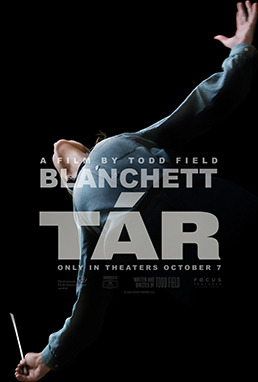
Direction: Todd Field
Screenplay: Todd Field
Starring: Cate Blanchet, Noémie Merlant, Nina Hoss, Sophie Kauer, Julian Glover, Allan Corduner, Mark Strong
Countries: United States, Germany
Language: English
Year: 2022
Running time: 158 minutes
#masterpiece#tár#nina hoss#todd field#music#identity#art#conduction#orchestra#film#cinema#noémie merlant#cate blanchett
7 notes
·
View notes
Text
VENEZIA 79 - 90 ANNI DI CINEMA al LIDO di VENEZIA
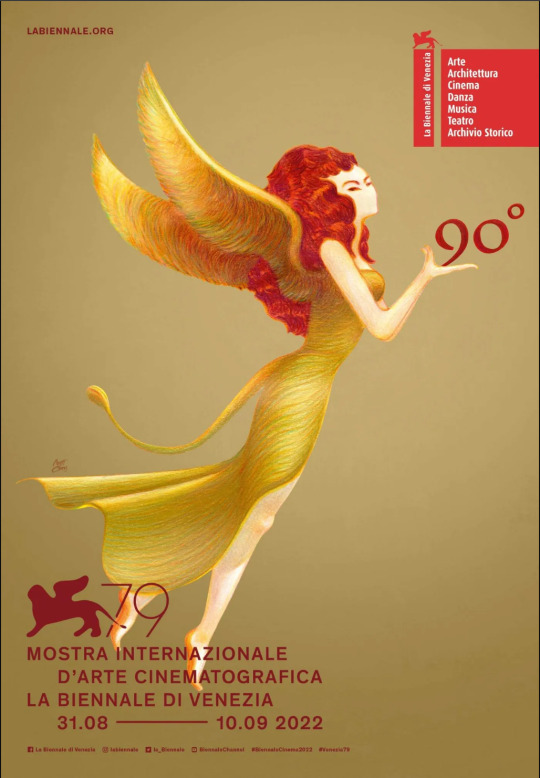
Manifesto Lorenzo Mattotti
COMPETITION of 79th Venice Film Festival
1. WHITE NOISE - OPENING FILM by NOAH BAUMBACH starring Adam Driver, Greta Gerwig, Don Cheadle, Raffey Cassidy, Sam Nivola, May Nivola, Jodie Turner-Smith, André L. Benjamin and Lars Eidinger/ USA / 136'
2. IL SIGNORE DELLE FORMICHE by GIANNI AMELIO with Luigi Lo Cascio, Elio Germano, Leonardo Maltese, Sara Serraiocco / Italy / 134'
3. THE WHALE by DARREN ARONOFSKY with Brendan Fraser, Sadie Sink, Hong Chau, Samantha Morton, Ty Simpkins / USA / 117'
4. L'IMMENSITÀ by EMANUELE CRIALESE with Penélope Cruz, Luana Giuliani, Vincenzo Amato, Patrizio Francioni / Italy, France / 97'
5. SAINT OMER by ALICE DIOP with Kayije Kagame, Guslagie Malanda, Valérie Dréville, Aurélia Petit / France / 122'
6. BLONDE by ANDREW DOMINIK with Ana de Armas, Adrien Brody, Bobby Cannavale, Xavier Samuel, Julianne Nicholson, Lily Fisher / USA / 165'
7. TÁR by TODD FIELD with Cate Blanchett, Noémie Merlant, Nina Hoss, Sophie Kauer, Julian Glover, Allan Corduner, Mark Strong / USA / 158'
8. LOVE LIFE by KÔJI FUKADA with Fumino Kimura, Kento Nagayama, Atom Sunada / Japan, France / 123'
9. BARDO, FALSA CRÓNICA DE UNAS CUANTAS VERDADES (BARDO, FALSE CHRONICLE OF A HANDFUL OF TRUTHS) by ALEJANDRO G. IÑÁRRITU with Daniel Giménez Cacho, Griselda Siciliani, Ximena Lamadrid, Iker Sanchez Solano, Andrés Almeida, Francisco Rubio / Mexico
10. ATHENA by ROMAIN GAVRAS with Dali Benssalah, Sami Slimane, Anthony Bajon, Ouassini Embarek, Alexis Manenti / France / 97'
11. BONES AND ALL by LUCA GUADAGNINO with Taylor Russell, Timothée Chalamet, Mark Rylance, André Holland, Chloë Sevigny, Jessica Harper, David Gordon Green, Michael Stuhlbarg, Jake Horowitz / USA / 130'
12. THE ETERNAL DAUGHTER by JOANNA HOGG with Tilda Swinton, Joseph Mydell, Carly-Sophia Davies / UK, USA / 96'
13. SHAB, DAKHELI, DIVAR (BEYOND THE WALL) by VAHID JALILVAND with Navid Mohammadzadeh, Diana Habibi, Amir Aghaee / Iran / 126'
14. THE BANSHEES OF INISHERIN by MARTIN MCDONAGH starring Colin Farrell, Brendan Gleeson, Kerry Condon, Barry Keoghan / Ireland, UK, USA / 109'
15. ARGENTINA, 1985 by SANTIAGO MITRE with Ricardo Darín, Peter Lanzani, Alejandra Flechner, Norman Briski / Argentina, USA / 140'
16. CHIARA by SUSANNA NICCHIARELLI with Margherita Mazzucco, Andrea Carpenzano, Carlotta Natoli, Paola Tiziana Cruciani, Luigi Lo Cascio / Italy, Belgium / 106'
17. MONICA by ANDREA PALLAORO with Trace Lysette, Patricia Clarkson, Adriana Barraza, Emily Browning, Joshua Close / USA, Italy / 106'
18. KHERS NIST (NO BEARS) by JAFAR PANAHI with Jafar Panahi, Naser Hashemi, Vahid Mobaseri, Bakhtiar Panjeei, Mina Kavani, Reza Heydari / Iran / 106'
19. ALL THE BEAUTY AND THE BLOODSHED by LAURA POITRAS USA / 113'
20. UN COUPLE (A COUPLE) by FREDERICK WISEMAN with Nathalie Boutefeu / France, USA / 63'
21. THE SON by FLORIAN ZELLER with Hugh Jackman, Laura Dern, Vanessa Kirby, Zen McGrath, Anthony Hopkins, Hugh Quarshie / UK / 123'
22. LES MIENS (OUR TIES) by ROSCHDY ZEM with Sami Bouajila, Roschdy Zem, Meriem Serbah, Maïwenn, Rachid Bouchareb, Abel Jafrei, Nina Zem / France / 85'
23. LES ENFANTS DES AUTRES (OTHER PEOPLE'S CHILDREN) by REBECCA ZLOTOWSKI with Virginie Efira, Roschdy Zem, Chiara Mastroianni, Callie Ferreira / France / 104'
OUT OF COMPETITION
1. The Hanging Sun, by Francesco Cozzini - Closing Film of the Festival
2. Kapag Wala Nang Mga Alon (When the Waves are Gone), by Lav Diaz
3. Living, by Oliver Hermanus
4. Dead for a Dollar, by Walter Hill
5. Kone Taevast (Call of God), by Kim Ki-Duk
6. Dreamin' Wild, by Bill Pohlad
7. Master Gardener, by Paul Schrader
8. Drought, by Paolo Virzi
9. Pearl, by Ti West
10. Don't Worry Darling, by Olivia Wilde
OUT OF COMPETITION - NON FICTION
1. Freedom on Fire: Ukraine's Fight for Freedom, by Evgeny Afineevsky
2. The Matchmaker, by Benedetta Argentieri
3. The Last Days of Humanity, by Enrico Ghezzi and Alessandro Gagliardo
4. A Compassionate Spy, by Steve James
5. Music for Black Pigeons, by Jorgen Leth and Andreas Koefoed
6. The Kiev Trial, by Sergei Loznitsa
7. In viaggio, by Gianfranco Rosi
8. Bobi Wine Ghetto President, Christopher Sharp and Moses Bwayo
9. Nuclear, by Oliver Stone
OUT OF COMPETITION - TV SERIES
1. Riget Exodus (The Kingdom Exodus) - episodes 1-5, by Lars von Trier (1 September)
2. Copenhagen Cowboy - episodes 1-6, by Nicolas Winding Refn
OUT OF COMPETITION - SHORTS
1. Camarera de Piso (Maid), by Lucrecia Martel
2. Look at Me, by Sally Potter
3. As for Us, by Simone Massi
4. When the war is over, by Simone Massi
ORIZZONTI
1. Princess, by Roberto De Paolis - Opening film
2. Obet' (Victim), by Michal Blaško
3. En Los Margenes (On the Fringe), by Juan Diego Botto
4. Trenque Lauquen, by Laura Citarella
5. Vera, by Tizza Covi and Rainer Frimmel
6. Innocence, by Guy Davidi
7. Blanquita, by Fernando Guzzoni
8. Pour la France (For My Country), by Rachid Hami
9. Aru Otoko (A Man), by Kei Ishikawa
10. Chleb I Sol (Bread and Salt), by Damian Kocur
11. Luxembourg, Luxembourg, by Antonio Lukich
12. Ti mangio il cuore, by Pippo Mezzapesa
13. Spre Nord (To The North), by Mihai Mincan
14. Autobiography, by Makbul Mubarak
15. The Syndacaliste (The Sitting Duck), by Jean-Paul Salomé
16. Jang-E Jahani Sevom (World War III), by Houman Seyedi
17. Najsrekniot Čovek Na Svetot (The Happiest Man in the World), by Teona Strugar Mitevska
18. A Noiva (The Bride), by Sergio Trefaut
ORIZZONTI EXTRA
1. L'origine du mal (Origin of Evil), by Sebastien Marnier - Opening film
2. Hanging Gardens, by Ahmed Yassin Al Daradji
3. Amanda, by Carolina Cavalli
4. Zapatos Rojos (Red Shoes), by Carlo Eichelmann Kaiser
5. Nezouh, by Soudade Kaadan
6. Phantom Night, by Fulvio Risuleo
7. Bi Roya (Without Her), by Arian Vazirdaftari
8. Valeria Mithatenet (Valeria is Getting Married), by Michal Vinik
9. Goliath, by Adilkhan Yerzhanov
_________///_______////_______///_______///_______
4 notes
·
View notes
Text
CRIMES OF THE FUTURE by David Cronenberg
Surgery is the new sex. Luckily Cronenberg exists. How boring would the world of cinema be without the disturbing and morbid works of David Cronenberg? Finally, his new film with the power to make us reflect on ourselves as human beings and our bodies concerning the world. Cannes 2022.

David Cronenberg's latest film obviously contains references to his past films, but they have nothing to do with his recent work. Intense, sacrilegious, but also rewarding. It contains disturbing elements, but is disturbing and morbid; the film is warm and gentle.
The main character is Saul Tenser, played by Viggo Mortensen. He is a body art artist and gives himself completely to art and the public because he cannot do otherwise. His colleague Caprice, played by Léa Seydoux is a former surgeon who has devoted herself to art for him. The artist gives everything to his audience, art can do everything, and the artist sacrifices himself totally.
This film is also a tribute to performing body art of the 1990s but has roots in the 1960s.
The presence of the doctor or surgeon joining the art world is not new. The doctor is an indispensable figure in extreme body art performance situations; surgery is irreversible.
The central theme of the film is the evolution of the human body, or rather its adaptive capacity to external changes and the vulnerability of the human being, both as an artist and as an audience. Human evolution, whatever it may be, always happens constantly and silently. We do not know whether taking on microplastics is good or bad, but certainly, with this work, we have a good opportunity to reflect on change.
Director: David Cronenberg
Screenplay: David Cronenberg
Cast: Viggo Mortensen, Léa Seydoux, Kristen Stewart, Speedman, Welket Bungué, Don McKellar e Lihi Kornowski.
Countries: Canada, France, United Kingdom, Greece
Language: English
Year: 2022
Running time: 107 min

---> Ita
CRIMES OF THE FUTURE di David Cronenberg
La chirurgia è il nuovo sesso. Per fortuna esiste Cronenberg. Quanto sarebbe noioso il mondo del cinema senza le opere inquietanti e morbose di David Cronenberg? Finalmente un nuovo film che ha il potere di farci riflettere su noi stessi come esseri umani e sui nostri corpi rispetto al mondo. Cannes 2022.
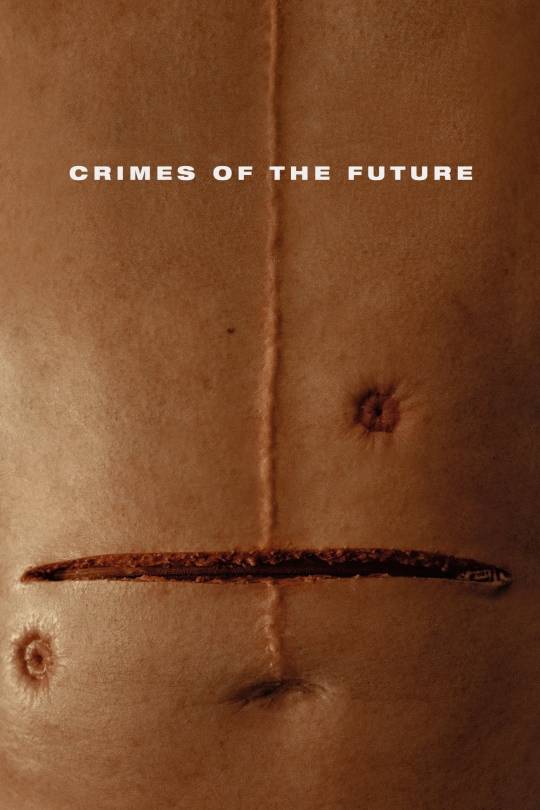
L’ultimo film David Cronenberg contiene ovviamente delle referenze con i suoi film del passato ma non hanno nulla che vedere con la nuova opera. Intensa, sacrilega ma anche gratificante contiene elementi disturbanti ma per quanto disturbante e morboso possa essere, il film è caldo e delicato.
Il protagonista Saul Tenser, interpretato da Viggo Mortensen è un artista di body art e si dona completamente all arte e al pubblico perché come tale non può fare altrimenti. La sua collega e compagna Caprice interpretata da Lea Sydeux è un ex medico chirurgo che si è votata all arte per lui. L’artista da tutto al suo pubblico, l’arte può tutto e l’artista si sacrifica totalmente.
Questo film è anche un omaggio alla performance-body art degli anni Novanta ma che nasceva negli anni Sessanta. La presenza del medico o chirurgo che si unisce al mondo dell’arte non è nuova, il medico è una figura indispensabile in situazioni di performance di body art estrema; la chirurgia è irreversibile.
Il tema centrale del film è l evoluzione del corpo umano o meglio la sua capacita’ adattiva ai cambiamenti esterni e la vulnerabilità del essere umano sia come artista che come pubblico. L’evoluzione umana, qualunque essa sia, avviene sempre in modo costante e silenzioso. Non sappiamo se assumere microplastica sia un bene o un male ma di certo con quest’opera abbiamo un ottima occasione per riflettere sul cambiamento.
Sceneggiatura: David Cronenberg
Attori: Viggo Mortensen, Léa Seydoux, Kristen Stewart, Scott Speedman, Welket Bungué, Don McKellar e Lihi Kornowski.
Paesi: Canada, Francia, Regno Unito, Grecia
Lingua: Inglese
Anno: 2022
Durata: 107 min

Regia: David Cronenberg
Sceneggiatura: David Cronenberg
Attori: Viggo Mortensen, Léa Seydoux, Kristen Stewart, Scott Speedman, Welket Bungué, Don McKellar e Lihi Kornowski.
Paesi: Canada, Francia, Regno Unito, Grecia
Lingua: Inglese
Anno: 2022
Durata: 107 min
#film#scaffale#cannes 2022#cannes#david cronenberg#viggo mortensen#kirsten stewart#lea seydoux#body art#surgery#performing arts#plastic#food#new food#warmth#cinema#sacrifice#artwork#changing#movies#surgery is the new sex
1 note
·
View note
Text
MEN di Alex Garland
Alex Garland's (Ex-Machina, Annihilation) the latest horror creation with a small Cast, comprises only seven performers, two principals plus five supporting roles, and has its world premiere at the Cannes Film Festival 2022.

There is no doubt about the choice of principal actors Jessie Buckley, an exceptional Irish performer whom we know from Fargo and The Lost Daughter. Together with Rory Kinnear, seen in Penny Dreadful and The Imitation Game, here playing Jeoffrey, he knows how to reconfirm his excellent acting ability, in this case with multiple interpretations, concerning the various characters that haunt the young protagonist.
The story sets in an English country cottage, where Harper (the young protagonist) goes to spend some peaceful time after the suicidal death of her possessive and despotic ex, who demanded her love and threatened to take her life if she did not.
The young woman's guilt, however, apparently won't leave her alone, even though she had nothing to do with his suicide.
A psychological horror film is also philosophical if you like, but still disturbing rather than splattering, although some scenes are intense.
The hypocritical and misogynistic thinking of the male human being goes emphasized and reiterated concretely. Rory Kinnear's outstanding acting performance, supported by visual effects, makes this world and way of thinking uncaring and alien to the female world.
It is a reality revealed here and makes one reflect in no small measure.

The film is of impact, with great attention to detail, reminiscent of the cinematic works of Ken Russell or David Cronenberg. The crucial difference between the works is that Garland's film is soberer and calibrated both in intent and visual effects.
A remarkable soundtrack maintains excellent suspense throughout the film.
Director: Alex Garland
Screenplay: Alex Garland
Actors: Jessie Buckley, Rory Kinear, Paapa Essiedu, Gayle Rankin, Sarah Twomey, Zak Rothera-Oxley, Sonoya Mizuno
Country: Great Britain
Language: English
Year: 2022
Duration: 100 min
--- > Ita
MEN
L'ultima creazione horror di Alex Garland (Ex-Machina, Annihilation), con un cast ristretto composto da soli sette interpreti: due protagonisti più cinque coprotagonisti, è stata presentata in anteprima mondiale al Festival di Cannes 2022.
Non ci sono dubbi sulla scelta degli attori principali, Jessie Buckley, un'eccezionale interprete Irlandese che conosciamo per la piu recente serie di Fargo e il film The Lost Daughter. Insieme a Rory Kinnear, visto nella serie Penny Dreadful e il The Imitation Game, qui nei panni di Jeoffrey, sa riconfermare le sue eccellenti capacità recitative, in questo caso con interpretazioni multiple, riguardanti i vari personaggi che perseguitano il giovane protagonista.
La storia è ambientata in un cottage di campagna inglese, dove Harper (la giovane protagonista) si reca per trascorrere un po' di tempo sereno dopo la morte suicida del suo possessivo e dispotico ex, che pretendeva il suo amore e minacciava di toglierle la vita in caso contrario.
Il senso di colpa della giovane donna, tuttavia, sembra non lasciarla in pace, nonostante non abbia nulla a che fare con il suicidio di lui.
Un horror psicologico anche filosofico, se vogliamo, m sempre inquietante più che splatter, anche se alcune scene sono particolarmente intense.
Il pensiero ipocrita e misogino dell'essere umano maschile è qui sottolineato e ribadito concretamente. L'eccezionale interpretazione di Rory Kinnear, supportata dagli effetti visivi, rende questo mondo e questo modo di pensare incurante ed estraneo al mondo femminile.
È una realtà che si rivela qui e che fa riflettere non-poco.

Il film è d'impatto, con una grande attenzione ai dettagli, che ricorda le opere cinematografiche di Ken Russell o David Cronenberg. La differenza principale tra questi è che il film di Garland risulta essere più sobrio e calibrato sia negli intenti che negli effetti visivi.
Una notevole colonna sonora mantiene un'eccellente suspense per tutto il film.
Regia: Alex Garland
Sceneggiatura: Alex Garland
Attori: Jessie Buckley, Rory Kinear, Paapa Essiedu, Gayle Rankin, Sarah Twomey, Zak Rothera-Oxley, Sonoya Mizuno
Pease: Gran Bretagna
Lingua: Inglese
Anno: 2022
Durata: 100 min
#Cannes#film#cinema#scaffale#alex garland#horror#rory kinnear#jessie buckley#misoginy#woman#men#cannes 2022
2 notes
·
View notes
Text
THE LAST DUEL by Ridley Scott
The Last Duel is the last film by Ridley Scott. The script is by Nicole Holofcener, Ben Affleck and Matt Damon, based on historical records concerning a duel that occurred in medieval France. Probably the last one run by the assembly of Paris. Starring Jodie Comer, Matt Damon, Adam Driver and Ben Affleck. Premiere out of competition Venice 78 - 10 September 2021.

A duel is a consensual and pre-established combat, arising in defence of honour, justice and respectability and taking place according to explicitly or implicitly accepted rules between men of the same (high) social class and armed in the same manner. The crime in question is the alleged 1386 rape of a nobleman's wife by another of lower rank. The husband presented the case to Charles VI, demanding the right to a judicial trial by combat. If the husband wins, this proves the truth of his request, i.e. the will of God. He's guilty if he dies or succumbs. If he survives, the sentence is to put him on the spot and his wife burned alive. Rape was a crime in medieval Europe, even punishable by death, but it was not a crime against the woman but her male guardian.
This duel takes place between two men Jean, played by Matt Damon and Le Gris, played by Adam Driver; those knights and fighters were initially friends. Jean demands the duel against Le Gris, who allegedly forcibly took his wife while he was away. Ridley Scott masterfully retraces the same story from all three points of view of the characters involved. They are accurate and meticulously elaborated. The director brings to light and shows on-screen details that are almost unthinkable but are there and
(those who do not notice them should see the film again) make the story of the time extremely contemporary. The meticulousness' in presenting the three different versions of the same scene is unparalleled in Cinema history.
A historical film based in the Middle Ages but made contemporary in its content, it is not a romantic novella but a visceral, raw and realistic story between women, men and power. A tale steeped in moral principles such as love, respect and courage. In which, however, emerges the tenacity and steadfastness of a lady Marguerite, impeccably played by Jodie Comer. Lady Marguerite is a strong woman and does not allow herself to be subjugated by the slanders and the thinking of the society of the time. This film tells a true story but with a freely interpreted ending.
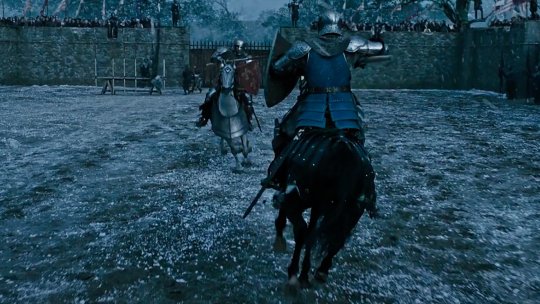
In Scott's film, we find several elements to reflect on: family, faith, revenge, pride, humility and power. The aspects here presented in a calibrated way do not lead to obvious conclusions. The screenwriter's work with the director's supervision work lies precisely in this. It is a thought-provoking and bewildering film. The film is beautiful and aesthetically pleasing. That's the point why the viewing becomes very absorbing. To reflect the reality of the time down to the smallest detail is what the historical reconstruction attempts to do. The special effects and the historical and archaeological insights also made this aspect possible. The ending battle is tremendously intense and exceptionally spectacular. That to-death fight keeps the spectator with bated breath and glued to his seat until the end.
Some will see a woman's revenge on the man, some will see it simply as an action or power play film, and some will see nothing special. But The Last Duel, even if spectacular for mainstream or the box office, is interesting and becomes important as a historical document. Like Roman Polanski's film, J'Accuse, the creators collaborating with the performers through a complex artwork, brought to light a historical event that happened and showed it to their contemporaries, however dramatically as a work, through the art form that is dear to us, which is cinema.
Director: Ridley Scott
Screenplay: Nicole Holofcener, Ben Affleck and Matt Damon
Based On The Last Duel: A True Story of Trial by Combat in Medieval France by Eric Jager
Cast: Jodie Comer, Matt Damon, Adam Driver, Ben Affleck
Countries: United Kingdom, United States
Language: English
Year: 2021
Runtime: 152 Min
Ita --->
THE LAST DUEL di Ridley Scott
L'ultimo duello è l'ultimo film di Ridley Scott. La sceneggiatura è di Nicole Holofcener, Ben Affleck e Matt Damon, la storia basata su documenti storici riguardanti un duello avvenuto nella Francia medievale. Probabilmente l'ultimo gestito dall'assemblea di Parigi. Con Jodie Comer, Matt Damon, Adam Driver e Ben Affleck. Prima Fuori Concorso Venezia 78 -10 settembre 2021
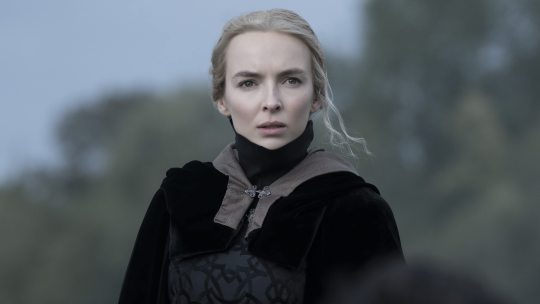
Il duello è un combattimento consensuale e prestabilito, scaturito per la difesa dell'onore, della giustizia e della rispettabilità e che si svolge secondo regole accettate in modo esplicito o implicito tra uomini di medesimo ceto sociale (alto) e armati nel medesimo modo. Il crimine in questione è il presunto stupro, avvenuto nel 1386, della moglie di un nobile da parte di un altro di rango inferiore. Il marito presentò il caso a Carlo VI, chiedendo il diritto a un duello giudiziario, o processo per combattimento. Se il marito vince, ciò dimostra apparentemente la verità della sua richiesta, ovvero la volontà di Dio. Se muore o cede, è colpevole; se sopravvive, sarà impiccato e la moglie bruciata viva. Lo stupro era un crimine nell'Europa medievale, addirittura punibile con la morte, ma non era un crimine contro la donna, bensì contro il suo tutore maschile. Il duello in questione avviene tra due uomini Jean interpretato da Matt Damon e Le Gris interpretato da Adam Driver, cavalieri e combttenti inizialmente amici Jean chiede il duello contro Le Gris che ha presumibilmente preso con forza la moglie mentre lui era assente.
Ridley Scott magistralmente ripercorre la stessa vicenda sotto tutti e tre i punti di vista dei personaggi coinvolti, in modo accurato e minuzioso riesce a portare alla luce e mostrare sullo schermo dei particolari che sono quasi ineccepibili ma ci sono e (chi non li nota dovrebbe rivedersi il film) rendono la vicenda del tempo estremamente contemporanea. La meticolosità nel proporre le tre diverse versioni della stessa scena non ha paragoni nella storia del cinema. Un film storico basato nel medioevo ma reso contemporaneo nei contenuti, non si tratta di una novella romantica ma di una storia viscerale, cruda e realistica tra donne uomini e potere. Racconto intriso di principi morali come amore, rispetto e coraggio, nel quale però emerge la tenacia e la fermezza di una dama, interpreta in modo impeccabile da Jodie Comer, soprattutto per il fatto di recitare le tre diverse versioni della vicenda con un grande lavoro interpretativo sugli stati d’animo di una donna coraggiosa e ferma che non si fa sottomettere dalle calunnie e dal pensiero della società del tempo. Quella che viene raccontata è una storia vera ma con un finale non definito, a interpretazione libera se vogliamo. Nel film di Scott troviamo diversi elementi su cui riflettere, la famiglia, la fede, la vendetta, l’ orgoglio, l’ umiltà e il potere.
Elementi che proposti in modo calibrato non portano a conclusioni ovvie, la bravura degli sceneggiatori e del regista sta proprio in questo: è un film che fa riflettere e che sconcerta. In sè il film è molto bello e molto curato nell’ aspetto estetico, anche per questo la visione diventa molto coinvolgente. La ricostruzione storica cerca di rispecchiare la realtà del tempo nei minimi particolari, questo oggi possibile anche dagli effetti speciali e gli approfondimenti storici e archeologici. La battaglia finale é tremendamente intensa e violenta oltreché eccezionalmente spettacolare. Un duello all’ultimo sague che fa tenere lo spettatore con il fiato sospeso e incollato alla poltrona fino all’ultimo.
Chi vedrà una rivalsa della donna sull’ uomo, chi lo vedrà semplicemente come un film d’azione o di giochi di potere, chi non ci vedrà nulla di particolare… ma The Last Duel, anche se reso estremamente spettacolare per il mainstrem o per i botteghini, diviene particolarmente interessante e importatane sotto l’aspetto di un documento storico. Come accadeva con l’opera J’Accuse di Roman Polanski, gli autori insieme agli interpreti, attraverso un lavoro complesso, portano alla luce e dunque sullo schermo un avvenimento realmente accaduto e lo propongono ai contemporanei, per quanto drammatizzato come opera, tramite la forma d’arte a noi cara che è il cinema.
Regia: Ridley Scott
Sceneggiatura: Nicole Holofcener, Ben Affleck, Matt Damon
Cast: Jodie Comer, Matt Damon, Adam Driver, Ben Affleck
Paese: Gran Bretagna, Stati Uniti
Lingua: Inglese
Anno: 2021
Durata: 152 Min
#film#cinema#scaffale#ridley scott#jodie comer#ben affleck#nicole holofceners#matt damon#duel#bienale cinema#biennalecinema
1 note
·
View note
Text
THE POWER OF THE DOG by Jane Campion
The Power of The Dog is the latest film by a well-known Australian director and screenwriter Jane Campion. It is drawn on the novel with the same title by Thomas Savage. Set on a ranch in 1925, it is a complex psychological thriller focusing on human relationships between power, homophobia and love. The protagonists: two brothers, a newlywed bride and her teenage son.
Premiere in Competition Venice 78 - 2 September 2021

The film tells the story of two brothers with opposing and contrasting characters. Phil Burbank (Benedict Cumberbatch) is a conservative cattle breeder, while his brother, George Burbank (Jesse Plemons) a simple, kind and open-minded man. The latter marries and brings Rose (Kirsten Dunst) and her son Peter (Kodi Smit-McPhee) to the ranch. Rose is a beautiful, enthusiastic widow who will give the overbearing Phil no small amount of trouble.
The film is a psychological thriller with a murky atmosphere and
focuses on the conflicting relationships between the protagonists, which unravel as the events take their course.
Campion's direction is methodical to maintain a rhythm between anguish and visual relaxation. The Power of The Dog proves is a complicated and mysterious film. Tension leads till the end, with no twists. The situation is suffocating and oppressive, and the feeling of unease floats throughout the film.

IBesides unease, the film is about frustration and revenge. Only in the finale does the mute reality of the facts emerge. The Power of the Dog represents the wicked, the negativity of repressed homosexuality in contrast to sincere and humble love; the disturbing response to evil is that of a young man who has all the credentials to rise like rotten fruit of a hypocritical and sick society.
Good, you are born, bad you become.
Director: Jane Campion
Screenplay: Jane Campion
Cast: Benedict Cumberbatch, Kirsten Dunst, Jesse Plemons, Kodi Smith-McPhee
Country: Australia, New Zealand
Language: English
Year : 2021
Runtime: 127 Min
THE POWER OF THE DOG
L’ultimo film della nota regista e sceneggiatrice Australiana Jane Campion è tratto dal omonimo romanzo di Thomas Savage. Ambientato in un ranch nel 1925, si tratta di un complesso thriller psicologico incentrato sui rapporti umani tra potere, omofobia e amore. I protagonisti: due fratelli, la sposa novella e il figlio adolescente. Prima in concorso Venezia 78 - 2 Settembre, 2021
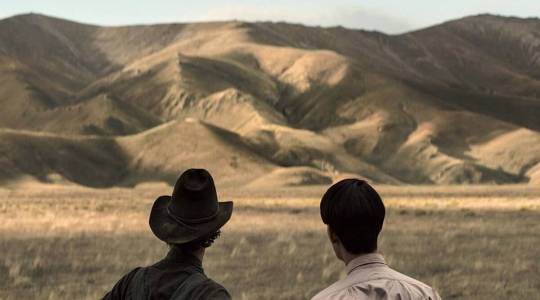
Il film racconta la storia di due fratelli dai caratteri opposti e contrastanti l’un con l’altro. Phil Burbank (Benedict Cumberbatch) è un mandriano conservatore, mentre il fratello, George Burbank (Jesse Plemons) è un uomo semplice, gentile e aperto al progresso. Quest’ultimo sposa e porta al ranch Rose (Kirsten Dunst) e suo figlio Peter (Kodi Smit-McPhee). Rose è una vedova bella, entusiasta e femminile che darà non-poco fastidio al prepotente Phil.
Si tratta di un thriller psicologico dall atmosfera torbida ed è incentrato sui rapporti conflittuali tra i protagonisti, che si svelano man mano che le vicende seguono il proprio corso.
La direzione è accurata e metodica, sa mantenere il ritmo tra angoscia e rilassamento visivo, The Power of The Dog si rivela un film complesso e misterioso. La tensione viene portata fino alla fine, non ci sono colpi di scena, certe situazioni sono soffocanti e opprimenti e la sensazione di disagio galleggia per tutto il film.
Il film racconta oltre al disagio, la frustrazione e la vendetta. Solo, nel finale emerge la muta realtà dei fatti. Il potere del cane rappresenta il male, la negatività di un omosessualità repressa in contrasto con l’amore sincero e umile; l’inquietante risposta, a questo male, è quella di un giovane che ha tutte le carte in regola per diventare anch’esso il frutto marcio di una società ipocrita e malata.
Buoni si nasce cattivi si diventa.
Regia: Jane Campion
Sceneggiatura: Jane Campion
Attori: Benedict Cumberbatch, Kirsten Dunst, Jesse Plemons, Kodi Smith-McPhee
Paese: Australia, Nuova Zelanda
Lingua: Inglese
Anno: 2021
Durata: 127 Min
#film#scaffale#cinema#jane campion#thomas savage#benedict cumberbatch#kirsten dunst#jesse plemons#kodi smit mcphee#thriller#homofobia#cowboys#costume movie#relationship#tixic relationships#biennale cinema#biennalecinema
2 notes
·
View notes
Text
COMPARTMENT No 6 by Juho Kuosmanen
Original title “Hytti nro 6″. A nostalgic story recalling the last years before the advent of digital technology, the 1990s. A film on the road, narrated with particular attention to human feelings. They freely adapted compartment No 6 from Richard Linklater's novel “Before Sunrise”. Film debut, Cannes 2021.

The film takes place on a train journey between Moscow and Murmansk. The main character Laura (Seidi Haarla), a Finnish student studying Russian in Moscow, finds herself on the cusp of a love affair with her landlady, Irina (Dinara Drukarova), and so Laura willingly embarks on a journey to Murmansk on an almost surreal mission to see some rare cave paintings in the region and to find out how she feels. Laura discovers she has to share her second-class berth with a tough-looking Russian, Ljoha (Yuriy Borisov). Her first impressions are not positive: Ljoha, a young Russian on his way to the mines for a new job, is tense, drinks vodka and smokes. Laura spends the beginning of the journey trying unsuccessfully to get away from him. But things change during an overnight stop after which, and not because of any peculiar revelation, they wake up as friends.
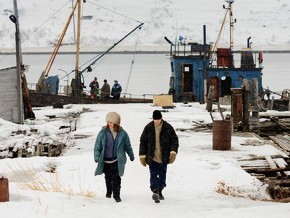
The director skilfully and meticulously recreates the retro-western environment of late-1990s Russia in such a complete and enveloping way that one can hardly imagine the smell of the compartments and the chills of cold draughts entering the obsolete carriage doors. The filming, focused on the past but shot with modern technology, confirms a remarkable mastery of handheld, non- intrusive filming that quietly cares about its characters without ever idealizing them. Two actors portray the ordinary and are extraordinary in this. The role of Haarla, the protagonist, is more subtle, her almost palpable insecurity constantly contrasting with the quiet self-confidence of her travelling companion Ljoha. In opposite, Borisov as Ljoha buries his soul under a restless, constant physicality. Admirable in conveying the smallest of changes in the chemistry between the characters, and together, one expects love to blossom.
Compartment No. 6 is full of surprises. It is not just a monotonous and poignant work that evokes a deep nostalgia for rather loneliness or melancholy that is gone lost, for which only a certain love was the cure. The film vindicates in a crystal-clear way, with a nod to the analogue, that period just before the digital revolution put a mobile phone in the pockets of every one of us and that we as a species lost the ability to be truly alone and able to live with ourselves and relate to each other in a less frenetic way and especially in the absence of electronic devices.
Director: Juho Kuosmanen
Actors: Seidi Haarla, Yuri Borisov
Countries: Finland/Estonia/Germany/Russia
Year: 2021
Runtime: 107 Min.
Ita -->
Titolo originale “Hytti nro 6″. Vicenda nostalgica che richiama gli ultimi anni prima dell’avvento del digitale ovvero gli anni Novanta. Un film on the road narrato con particolare attenzione verso i sentimenti umani. Compartment No 6 é liberamente tratto dal romanzo di Richard Linklater: “Before Sunrise”. Il film debutta a Cannes 2021
Il film si sviluppa in un viaggio in treno tra Mosca e Murmansk. La protagonista Laura (Seidi Haarla), una studentessa finlandese che studia russo a Mosca, si ritrova all’ apice di una relazione amorosa con la sua affittuaria, Irina (Dinara Drukarova) per questo motivo Laura intraprende volentieri un viaggio verso Murmansk in una missione quasi surreale per vedere alcune rare pitture rupestri della regione. Laura si troverà a dividere la sua cuccetta di seconda classe con un russo dall'aspetto duro, Ljoha (Yuriy Borisov). Le prime impressioni non sono buone: Ljoha, è un giovane russo in viaggio verso delle miniere per un nuovo lavoro si presenta teso, nervoso, beve vodka e fuma. Laura, trascorre l’inizio del viaggio cercando senza successo di allontanarsi da lui. Ma le cose cambiano durante una sosta notturna dopo la quale, e non a causa di qualche rivelazione particolare, si svegliano come amici.
Il regista sapientemente e minuziosamente ricrea l'ambiente retro-occidentale della Russia di fine anni '90 in modo così completo e avvolgente che non si fa fatica a immaginare l'odore degli scompartimenti e i brividi dati dalle correnti d'aria fredda che entrano dalle porte obsolete delle carrozze. Le riprese incentrate sul passato ma realizzate con le tecnologie moderne, confermano una notevole mestria di ripresa a mano, non intrusiva che si preoccupa tranquillamente dei suoi personaggi senza mai idealizzarli.I due attori sono straordinari nel ritrarre l'ordinario. Il ruolo di Haarla, la protagonista, è più sottile, la sua quasi palpabile insicurezza è costantemente in contrasto con la tranquilla autostima del suo compagno di viaggio Ljoha. Invece Borisov nel ruolo di Ljoha, seppellisce la sua anima sotto una fisicità inquieta e costante. Ammirevoli nel trasmettere il più piccolo dei cambiamenti nella chimica tra i personaggi, e insieme, infatti ci si aspetta che sbocci un amore.
Compartment No. 6 sa essere pieno di sorprese, non è solo un opera monotona e struggente che evoca una profonda nostalgia per quel genere di solitudine o melancolia che é andata persa, alla quale solo un certo tipo di amore ne era la cura. Il film rivendica in modo cristallino, con un richiamo verso l’analogico, quel periodo poco prima che la rivoluzione digitale mettesse un cellulare nelle tasche di ognuno di noi e che noi come specie perdessimo la capacità di essere veramente soli e capaci di vivere con noi stessi e rapportarci con l’altro in modo meno frenetico e soprattutto in assenza di dispositivi elettronici.
Regia: Juho Kuosmanen
Attori: Seidi Haarla, Yuri Borisov
Paesi: Finland/Estonia/Germany/Russia
Anno: 2021
Durata: 107 Min.
#Compartmentn6#Juho Kuosmanen#Seidi Haarla#Yuri Borisov#films#cannes#cinemathography#filmfestival#analogic
8 notes
·
View notes
Text
LA NUIT DES ROIS by Philippe Lacôte
Set in the Ivory Coast heart, there is La Maca, a prison governed by the prisoners themselves. Lacôte's film focuses essentially on the theme of power as an inseparable form of relationship with the other. La Maca in this film becomes the theatre of a fight for power.

A young new prisoner, Roman interpreted by Koné Bakary: the protagonist of this story is in charge as storyteller during the last night of the blood full moon, not knowing that this will end in his own death. To stay alive, he soon understands that his story has to entertain all the other prisoners until sunrise. By doing so, Roman, through his cunning, will address the doom and change the tradition. So Roman begins the storytelling about a fellow criminal in the slum of Abidjan, Zama King, and how he was driven to his death.
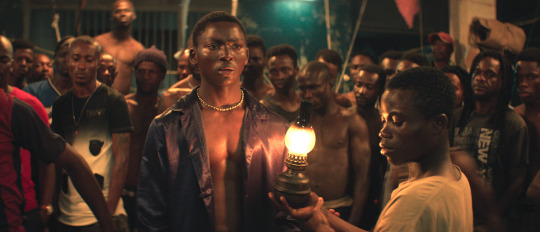
In this film, we are eye opened to the violence that dominates the daily life of Abidjan. Zhama was a genuine character, tortured, burned and killed by the population. They did not find his body. Roman's sometimes improvised story, which also bears witness to an ancient tradition of themes belonging to the culture of the griots, from whom he descended, highlights above all the drama of the country's daily life, embroidered with bloody scenarios of typical civil war clashes. Zhama, through the myth of the clash for power between an ancient queen and her younger brother, speaks of the political/social context of his country, where the dictator Gbagbo got arrested by the republican military forces, and of the games of power set inside the prison. Where another struggle for succession is taking place. He portrays the battle between the queen and her brother in a fantastic and almost virtual way: a clash that takes place through the use of special effects, without blood or victims.
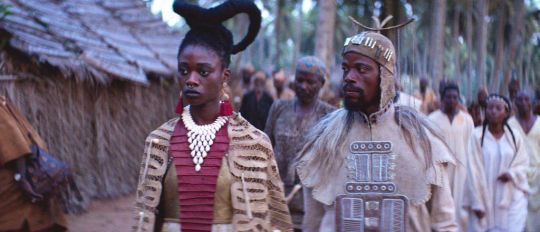
A tribute to the African culture that is steeped in and is never the basis of Shakespearean dramaturgy and Western arts. In this superb African film, we find both oral tradition, themes and dramatizations, both ancient and contemporary, amalgamated in a timeless dimension. The magnificent locations and sets also captivate the viewer, which is so authentic that the immersion in the setting is almost total.
Once again, we discover that African cinema can be profoundly theatrical. The narration of the protagonist's story, improvised on the spot, is suspenseful, intense and involving. It is reminiscent of the muddy, conflict-ridden setting of the class struggles of Quai Ouest (1985), a youthful text by Bernard Marie Koltès, where the protagonists are those of the urban subculture struggling in a battle for survival, as the case with our protagonist.
Director: Philippe Lacôte
Actors: Koné Bakary, Steve Tientcheu, Rasmané Ouédraogo, Issaka Sawadogo, Digbeu Jean Cyrille
Country: France/Ivory Coast/Canada/Senegal
Year: 2020
Length: 93 Min.
Ita —>
Nel cuore della foresta della Costa d'Avorio, c'è La Maca, una prigione governata dai prigionieri stessi. Il film di Lacôte è incentrato essenzialmente sul tema del potere come forma inscindibile di relazione con l'altro. La Maca in questo film diventa il teatro di una lotta per il potere.
Un giovane nuovo prigioniero, Roman interpretato da Koné Bakary, il protagonista di questa storia è incaricato di essere il narratore durante l'ultima notte di luna piena di sangue, senza sapere che questo finirà con la sua stessa morte. Per rimanere vivo, capisce presto che la sua storia deve intrattenere tutti gli altri prigionieri fino all'alba. Così facendo, Roman con la sua astuzia affronterà il destino e cambierà la tradizione. Così Roman inizia a raccontare la storia di un compagno criminale nella baraccopoli di Abidjan, Zama King, e di come è stato condotto alla morte.
In questo film, ci viene aperto l'occhio sulla violenza che domina la vita quotidiana di Abidjan. Zama era un personaggio reale che è stato torturato, bruciato e ucciso dalla popolazione, il suo corpo non è mai stato trovato. La storia a tratti improvvisata di Roman, che sa farsi anche testimone di una tradizione antica di temi appartenenti alla cultura dei griot, dai quali discende, evidenza soprattutto il dramma in cui vive il quotidiano del Paese, ricamato da scenari sanguinosi di scontri tipici da guerra civile. Il cantore, attraverso il mito dello scontro per il potere tra un’ antica regina e il fratello minore, parla del contesto politico/sociale del suo Paese, dove il dittatore Gbagbo è stato arrestato dalle forze militari repubblicane, nonché dei giochi di potere all’ interno della prigione dove, oltretutto si sta avverando un’altra lotta per la successione. La battaglia tra la regina e il fratello viene rappresentata in modo fantastico e quasi virtuale: uno scontro che si consuma esclusivamente attraverso l’uso di effetti speciali senza sangue e senza vittime.
Un omaggio alla cultura africana che è intrisa e che comunque è alla base della drammaturgia shakespeariana e delle arti occidentali. In questo superbo film africano troviamo riassunti sia la tradizione orale, i temi e le drammatizzazioni sia antiche che contemporanee amalgamati in una dimensione atemporale. Lo spettatore inoltre viene affascinato dalle magnifiche location e dalle scenografie che sono estremamente accurate e autentiche da far sì che l’immersione nell’ambientazione sia quasi totale.
Ancora una volta scopriamo che il cinema africano sa essere profondamnte teatrale, la narrazione del racconto del protagonista, improvvisata sul momento è carica di suspence, intensa e coinvolgente. Ricorda a tratti l’ambientazione fangosa e conflittuale delle lotte di classe di Quai Ouest (1985), testo giovanile di Bernard Marie Koltès, dove i protagonisti sono quelli della subcultura urbana che lottano in una battaglia per la sopravvivenza come accade per il nostro protagonista.
Regia: Philippe Lacôte
Attori: Koné Bakary, Steve Tientcheu, Rasmané Ouédraogo, Issaka Sawadogo, Digbeu Jean Cyrille
Pease: Francia/Costa D’Avorio/Canada/Senegal
Anno: 2020
Durata: 93 Min.
#the night of the kings#lanuitdesrois#philippe lacôte#kone bakary#film#films#cinemathography#mostradelcinema#africa#mito#mitologia#narrazione#lamaca#ivorycoast#prison#prisoners#venezia77#biennalecinema#biennale cinema
2 notes
·
View notes
Text
Never Gonna Snow Again by Michał Englert & Małgorzata Szumowska
It is a dreamlike, precise and profound cinematographic work that develops indirectly, because the references are conceptual and not image-based, referring the spectator to the disturbing atmosphere that Andrei Tarkovsky presented us within Stalker in 1979. The film is interesting and disturbing, satirical and curious, a cross-section of bourgeois insularity in modern Poland.
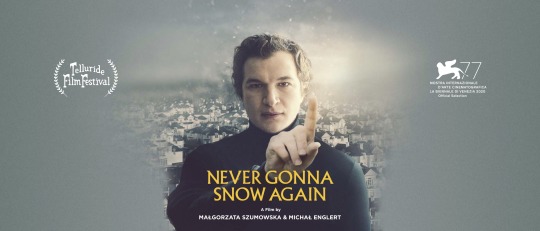
The main character is Zhenia, a young Ukrainian masseur who moves to Poland for work. Zhenia finds work in some cottages in an exclusive residence. He starts visiting, with his portable massage table, these inhabitants, almost all of whom are privileged and frustrated people prone to melancholic fantasies. The mysterious protagonist's activity is to bring hours of relief to these characters who seem to live a fake life in muffled days.

Zhenia not only gives relaxing massages, but he also knows the art of hypnosis, which makes him particularly fascinating and mysterious. He takes care of his clients and observes them deep inside, listening to them and giving them intimacy and friendship, if not pure love. But we know Zhenia is also looking for something in all this. Probably out of a conspiracy of silence, no one in the village ever asks him anything about his personal life, since he comes from a place near Chernobyl. Only the viewer, thanks to flashbacks, knows that as a child Zhenia lost his mother to nuclear fallout, and he mistook radioactive soot for snow.
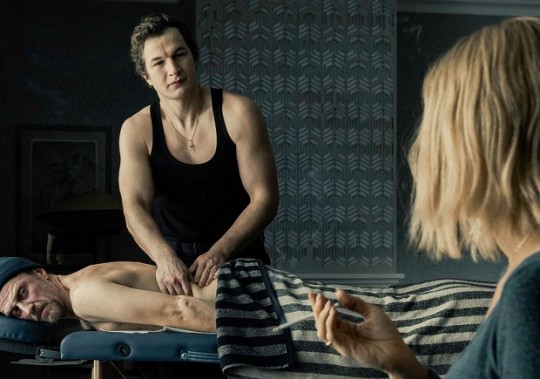
The script, which comes across as comical, is extremely well-paced, explores the behaviour of the most self-centred middle-class characters and how they treat each other, their children and their employees.
Also, on the film shooting and the photographic level, we face the achievement of impeccable artistic perfection.
The elegance of the soundtrack, including Shostakovich's waltz, which was also used by S. Kubrick in Eyes Wide Shut, relaxes us and immerses us in this profound and thoughtful work, which suggests many references to other important films and is rich in sociopolitical allusions.
Directors and screenpaly: Michał Englert e Małgorzata Szumowska
Actors: Alec Utgoff
Countries: Polonia Germania
Year: 2020
Runningtime: 113 min.
Ita -->
Never Gonna Snow Again by Michał Englert & Małgorzata Szumowska
A Venezia 77.
Si tratta di un opera filmica onirica, precisa e profonda che si sviluppa rimandando indirettamente, perché i riferimenti sono concettuali e non d’immagine, lo spettatore a quella atmosfera inquietante che ci presentava già Andrei Tarkovsky in Stalker nel 1979. Il film è avvincente e inquietante, satirico e curioso è uno spaccato sull insularità borghese nella Polonia moderna. Il protagonista di questa vicenda è Zhenia un giovane massaggiatore ucraino che per motivi di lavoro si trasferisce in Polonia.
Zhenia trova lavoro presso alcune villette inserite in un residence esclusivo. Comincia a fare visita, con il suo lettino per massaggi portatile, a questi abitanti, quasi tutte persone privilegiate e frustrate inclini a fantasie malinconiche. L’attività del misterioso protagonista è quella di portare delle ore di sollievo a questi personaggi che sembrano vivere una vita finta in giornate ovattate.
Zhenia non solo fa massaggi rilassanti, conosce l’arte dell’ ipnosi e questo lo rende particolarmente affascinante e misterioso. Si prende cura dei propri clienti e li osserva nel profondo ascoltandoli e dandogli intimità e amicizia se non puro amore. Ma sappiamo che anche Zhenia sta cercando qualcosa in tutto ciò. Probabilmente per omertà nessuno del villaggio gli chiede mai nulla della sua vita personale dal momento che proviene da un luogo non lontano da Chernobyl. Solo lo spettatore, grazie a dei flash back sa che da bambino Zhenia perse la madre a causa della ricaduta nucleare e lui scambiò la fuliggine radioattiva per neve.
La sceneggiatura, che a volte si rivela comica è estremamente ben curata, esplora il comportamento dei personaggi più egocentrici della classe media e di come si trattano l’un l’altro, i loro figli e i propri dipendenti.
Anche a livello filmico e fotografico ci troviamo di fronte a una realizzazione d'impeccabile perfezione artistica. L’eleganza data dalla colonna sonora, tra cui troviamo il valzer di Shostakovich usato anche da S.Kubrick in Eyes Wide Shut ci rilassa e ci fa immergere in questa opera profonda e riflessiva che ci suggerisce molti riferimenti ad altre opere filmiche importanti, nonché ricco di allusioni sociopolitiche.
Regia e sceneggiatura: Michał Englert e Małgorzata Szumowska
Attori: Alec Utgoff
Paesi: Polonia Germania
Anno 2020
Durata: 113 min.
#nevergonnasnowagain#michał englert#małgorzata szumowska#alec utgoff#venezia77#chernobyl#cinemathography#poetry#mostradelcinema#biennalecinema#film#movie#films#filmfestival
8 notes
·
View notes
Text
Jumbo by Zoe Wittock
The first feature film of the director Zoe Wittock is about a weird love story between Jeanne, a young girl who fell in love with a Jumbo, a machine.
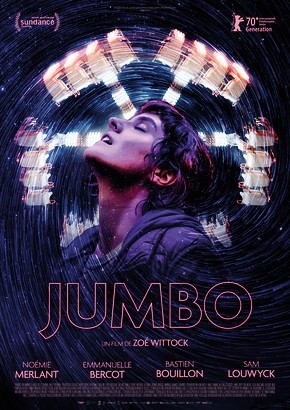
Jumbo is the name of a fun park machine. Jeanne is a young teenager who is shy with her peers, introverted and creative. She dabbles in assembling electrical objects. During the summer holidays, she agrees to work at the amusement park, and it is here that she unexpectedly establishes a special love relationship with Jumbo.
The very simple and light film is not presented with many pretensions but openly addresses themes of unusual or even, shall we say, difficult argumentation. The film, which is very simple and light-hearted, is not presented with many pretensions but openly deals with themes of unusual or even, shall we say, difficult argumentation such as objectophilia, the relationship between mother and daughter, acceptance of the diversity of the other in whatever form it presents itself be it a lover or the choices of one's daughter.
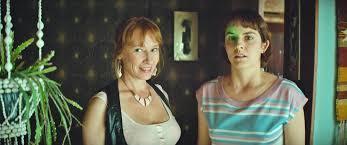

Noémie Merlant, already of commendable talent in Portrait Of A Lady On Fire by Cèline Schiamma, who we find here playing the young protagonist, surprises once again. Her ability to identify with the character is astonishing.
In addition, the depiction of the exchange of fluids, and sexual emotions between the two lovers is a very intense and passionate scene, reminding us a little of a setting that merge D. Cronenberg's Crash and J. Glazer's Under the Skin.

The director, Zoe Wittock knows how to express in a profoundly accurate way a tender, poignant and misunderstood love.
“I see Jumbo as a coming-of-age story and coming out story. Jeanne is struggling with telling her mother she is in love—and that loving Jumbo is who she is. This film is an allegory for many different types of identities or sexualities, or anyone that can relate. Differences of who we are as people is the theme I wanted to explore. People will watch this and hopefully be at least open to learning more about objectophila. You don’t accept it, fine, at least you have a little of an understanding.” - Zoe Wittock
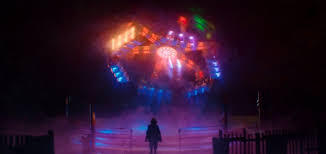
Director & Writer: Zoé Wittock
Actors: Noémie Merlant, Emmanuelle Bercot, Sam Louwyck, Bastien Bouillon, Éric Gigout, Tracy Dossou, Jonathan Bartholme
Country: France
Year: 2020
Runtime: 99 min.
Ita-->
Il primo film della regista Zoe Wittock parla di una inconsueta storia d'amore tra Jeanne, una giovane ragazza che si è innamorata di un Jumbo, una macchina.
Jumbo è il nome di una macchina del parco divertimenti. Jeanne è una giovane adolescente timida con i suoi coetanei, introversa e creativa. Si diletta ad assemblare oggetti elettrici.Durante le vacanze estive, accetta di lavorare al parco divertimenti, ed è qui che inaspettatamente instaura una relazione d'amore speciale con Jumbo.
Il film, molto semplice e leggero, non si presenta con molte pretese ma affronta apertamente temi di argomentazione insolita o addirittura, diciamo, difficile. Il film, molto semplice e leggero, non si presenta con molte pretese ma affronta apertamente temi di argomentazione insolita o addirittura, diciamo, difficile come l'oggettofilia (attrazione sentimentale e sessuale per uno specifico oggetto inanimato), il rapporto tra madre e figlia e l'accettazione della diversità dell'altro in qualsiasi forma si presenti sia esso un amante o le scelte della propria figlia.
Noémie Merlant, già di lodevole talento in Portrait Of A Lady On Fire di Cèline Schiamma che ritroviamo qui a interpretare la giovane protagonista, sorprende ancora una volta. La sua capacità di immedesimarsi nel personaggio è sorprendente.
Inoltre, la rappresentazione dello scambio di fluidi, e delle emozioni sessuali tra i due amanti è una scena molto intensa e passionale, che ci ricorda un po' uno scenario che fonde Crash di D. Cronenberg e Under the Skin di J. Glazer.
La regista Zoe Wittock sa come esprimere in modo profondamente accurato un amore tenero, struggente e incompreso.
"Vedo Jumbo come una storia di coming-of-age e di coming out. Jeanne sta lottando per dire a sua madre che è innamorata e che amare Jumbo è quello che è. Questo film è un'allegoria per molti diversi tipi di identità o sessualità, o per chiunque possa relazionarsi. Le differenze di chi siamo come persone è il tema che volevo esplorare. La gente lo guarderà e si spera che sia almeno aperta a saperne di più sull'oggettofilia. Se non lo accettate, bene, almeno avrete un po' di comprensione". - Zoe Wittock
Regia e sceneggiatura: Zoé Wittock
Attori: Noémie Merlant, Emmanuelle Bercot, Sam Louwyck, Bastien Bouillon, Éric Gigout, Tracy Dossou, Jonathan Bartholme
Paese: Francia
Anno: 2020
Durata: 99 min.
#berlinale#berlinale70#zoé wittock#noemie merlant#emmanuelle bercot#jumbo#machine#funpark machine#Love#lovestory#objectophila#coming of age#relationship#first work#film#movie#films#filmfestival
1 note
·
View note
Text
Welcome To Chechnya by David France
Berlinale 70 - Dramatically revealing and deeply disturbing documentary on the everyday racist and discriminatory Chechnya reality. Activists risk their lives to confront Russian leader Ramzan Kadyrov and his government-directed campaign to detain, torture and execute LGBTQ Chechens.

The documentary focuses on the abuse and persecution suffered by the LGBTQ+ community and the extremely delicate operations of activists working to rescue these people from an openly homophobic and transphobic country.
Since 2017, real persecution has started in Chechnya towards all apparent people or even just sympathizers of the LGBTQ+ community at the hands of groups also organized in collaboration with law enforcement agencies. Without much ado, we see footage of a TV show in which the Chechen prime minister, approved by Putin, openly declares that in his country there are no such people here, in Chechnya, there are no gays.
The raw, direct and explicit film is of relevance as it clearly expresses a serious violation of human rights.

The documentary editing is in a noir thriller style and produces a certain anxiety in the viewer, especially due to the use of surreptitious footage. The DeepFace technology that is used to conceal the identity of the victims contributes to the emotionality of the interviews, causing a sense of tension and involvement in the viewer.
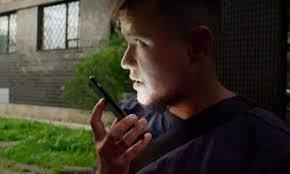
Chechen activists carry out delicate and dangerous work, protecting asylum-seeking victims in the most absolute way, risking persecution if not death. In the documentary, specific or personal locations are never to be mentioned, only that Canada or Europe have accepted some asylum seekers.
Director & Writer: David France
Country: Russian
Actors: Olga Baranova, David Isteev, Ramzan Kadyrov, Maxim Lapunov.
Year: 2020
Runtime: 107 min.
Ita--->
Documentario drammaticamente rivelatore e profondamente inquietante sulla realtà quotidiana razzista e discriminatoria della Cecenia. Gli attivisti rischiano la vita per affrontare il leader russo Ramzan Kadyrov e la sua campagna guidata dal governo per detenere, torturare e giustiziare i ceceni LGBTQ.
Il documentario si concentra sugli abusi e le persecuzioni subite dalla comunità LGBTQ+ e sulle operazioni estremamente delicate degli attivisti che lavorano per salvare queste persone da un paese apertamente omofobo e transfobico.
Dal 2017 in Cecenia sono iniziate vere e proprie persecuzioni verso tutte le persone apparenti o anche solo simpatizzanti della comunità LGBTQ+ per mano di gruppi organizzati anche in collaborazione con le forze dell'ordine. Senza tanti giri di parole, vediamo il filmato di una trasmissione televisiva in cui il primo ministro ceceno, approvato da Putin, dichiara apertamente che nel suo paese non ci sono persone così, in Cecenia non ci sono gay. La testimonianza cruda, diretta ed esplicita è rilevante perché esprime chiaramente una grave violazione dei diritti umani.
Il montaggio del documentario in stile noir/giallo produce una certa ansia nello spettatore, soprattutto per l'uso di riprese surrettizie. La tecnologia DeepFace usata per nascondere l'identità delle vittime contribuisce all'emotività delle interviste, provocando un senso di tensione e coinvolgimento nello spettatore.
Gli attivisti ceceni svolgono un lavoro delicato e pericoloso, proteggendo le vittime richiedenti asilo nel modo più assoluto, rischiando la persecuzione se non la morte. Nel documentario non vengono mai menzionati luoghi specifici o personali, solo che il Canada o l'Europa hanno accettato alcuni richiedenti asilo.
Regia e sceneggiatura: David France
Paese: Russia
Attori: Olga Baranova, David Isteev, Ramzan Kadyrov, Maxim Lapunov.
Anno: 2020
Durata: 107 min.
#berlinale#berlinale70#david france#welcome to chechnya#lgbtq+#violence#documentary#publicprice#queer activism#activism#deepface#film#films#cinema#cinematography
1 note
·
View note
Text
DAU.NATASHA by Ilya Khrzhanovsky & Jekaterina Oertel
The banality of evil hard, simple. An artistic installation, a tragic, disturbing and unfortunately realistic cinematic work about a reality that is intertwined between power, politics, science, philosophy and humanity.
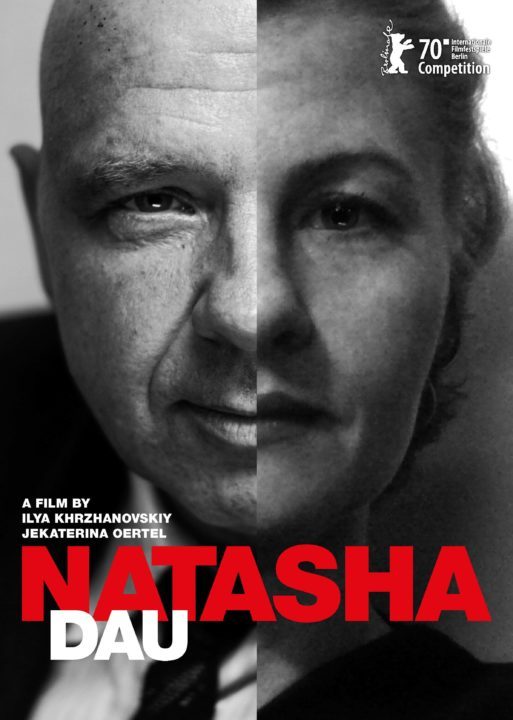
The film, created from a colossal artistic project, takes place as a disturbing study of characters that slowly reveals the oppressive reality in which this creative experiment was designed. We are dealing with a complex film. DAU explores the life of Nobel Prize-winning Soviet scientist Lev Landau. The making of Dau takes place over a three years of intense shooting made by director Ilya Khrzhanovskiy together with Jekaterina Oertel (also hairdresser and make-up artist). Oertel has also created a cinematography that combines the method of deep diving with a horrible reality TV twist.
Natasha played by Natalia Berezhnaya is a brutally nauseating and crude image of the life of a fictional woman working in the staff canteen of a scientific research institute of Stalin's time in Moscow, the institute is directed by the theoretical physicist Lev Landau nicknamed "Dau".
The film begins with a cross-section of the canteen where Natasha serves at the cashier's desk and has a quarrelsome relationship with her young assistant Olga, who is a waitress at the tables. One night, Natasha and Olga get thunderously drunk with all the scientists who have come to celebrate a disturbing radiation experiment conducted by Luc (Luc Bigé), who is sleeping with Natasha. Following the incident, with a nauseating inevitability, Natasha is recalled for questioning by the security services, by officer Azhippo (Vladimir Azhippo).
In the end, the film gives us a look inside room 101, with all its terror and bleakness.
Azhippo repeatedly asks if he and Natasha will be "friends", and it is not simply sadism. They may need a cordial working relationship: Natasha and Azhippo live in a gruesome Stockholm syndrome, like the one that unites the people and the Stalinist state. It is a strange kind of high-functioning desperation. A disturbing, intimately disturbing film.
The film, being part of a gigantic ensemble that is mostly invisible and perhaps imperceptible, i.e. a colossal multimedia art installation project that has become legend for 15 years, cannot be judged simply by what we see on the screen.
The director Ilya Khrzhanovsky proposed a work replicating the Moscow institute, already built in Ukraine for location shooting, and finishing the interiors of each room as if they were an absolutely accurate clone of the research institute. Hundreds of actors lived and "worked" there in continuous improvisation for months were cut off from the internet and the outside world.
So far, 13 films have emerged from the Dau project, 12 of which were shown last year at an immersive Dau exhibition in Paris. This is the first of the Dau franchises to be shown in conventional theatrical terms.
Directors: Ilya Khrzhanovsky & Jekaterina Oertel
Actors: Natalia Berezhnaya, Olga Shkabarnya, Vladimir Azhippo, Alexiei Blinov, Anatoliy Sidko, Luc Bigé
Country: Russia, Germany, Ukraine, United Kingdom
Year: 2020
Runtime: 146 min
---> ita
Il film, nato da un colossale progetto artistico, si svolge come un inquietante studio dei personaggi che lentamente rivela la realtà opprimente in cui questo esperimento creativo è stato concepito. Si tratta di un film complesso. DAU esplora la vita dello scienziato sovietico Lev Landau, premio Nobel per la scienza. Il film è complesso, la realizzazione di Dau si svolge in tre anni di intense riprese realizzate dal regista Ilya Khrzhanovskiy insieme a Jekaterina Oertel (anche parrucchiera e truccatrice). Oertel ha anche creato una cinematografia che combina il metodo dell'immersione profonda con colpi di scena di grande impatto in stile televisivo.
Natasha interpretata da Natalia Berezhnaya è una figura brutalmente nauseante e cruda della vita di una donna che lavora nella mensa del personale di un istituto di ricerca scientifica dell'epoca di Stalin a Mosca, l'istituto è diretto dal fisico teorico Lev Landau soprannominato "Dau".
Il film inizia con uno spaccato della mensa dove Natasha serve alla cassa e ha una relazione litigiosa con la sua giovane assistente Olga che fa la cameriera ai tavoli. Una sera, Natasha e Olga si ubriacano fragorosamente con tutti gli scienziati venuti a festeggiare un inquietante esperimento di radiazioni condotto da Luc (Luc Bigé), che va a letto con Natasha. In seguito all'incidente Natasha viene richiamata per essere interrogata dai servizi di sicurezza, dall'ufficiale Azhippo (Vladimir Azhippo). L’interrogatorio ci porta inevitabilmente all'interno della stanza 101, con tutto il suo terrore e la sua desolazione. Azhippo in conclusione chiede se lui e Natasha saranno "amici", e non si tratta di semplice sadismo. Forse hanno bisogno di un rapporto di lavoro cordiale. Natasha e Azhippo vivono in una macabra sindrome di Stoccolma, come quella che unisce il popolo e lo stato stalinista. La disperazione traspare inevitabilmente in modo rassegnato. Questa pellicola è intimamente inquietante.
Il film, essendo parte di un gigantesco insieme per lo più invisibile e forse impercettibile, cioè di un colossale progetto d'installazione artistica multimediale diventato leggenda oramai da 15 anni, non può essere giudicato semplicemente da ciò che vediamo sullo schermo.
Il regista Ilya Khrzhanovsky ha proposto un'opera che riproduce l'istituto di Mosca, ha costruito una location in Ucraina per le riprese e ha rifinito gli interni di ogni stanza come se fossero una copia assolutamente accurata e fedele all’originale istituto di ricerca. Centinaia di attori vi hanno vissuto e "lavorato" in continua improvvisazione; per tutto il periodo di lavoro sono stati tagliati fuori da internet e dal mondo esterno.
Finora, dal progetto Dau sono emersi 13 film, 12 dei quali sono stati proiettati l'anno scorso, a Paragi, in una mostra immersiva sempre intitolata DAU. DAU.Natasha è il primo dei franchise DAU ad essere proiettato in una sala cinematografica.
Regista: Ilya Khrzhanovsky & Jekaterina Oertel
Attori: Natalia Berezhnaya, Olga Shkabarnya, Vladimir Azhippo, Alexiei Blinov, Anatoliy Sidko, Luc Bigé
Paese: Russia, Germania, Ukraine, Gran Bretagna
Anno: 2020
Durata: 146 min
#berlinale#berlinale70#Ilya Khrzhanovsky & Jekaterina Oertel#film#art#artwork#opera#russia#military#science#secretsperiment#paris#dau#dau.natasha#dau.degenetazia#daudegeneration#humanity#violence#cinematography#olga shkabarnya#natalia berezhnaya#vladimir azhippo#photography#movie#actor#film photography#love#cinema#filmmaking#hollywood
3 notes
·
View notes
Text
NEVER, RARELY, SOMETIMES, ALWAYS by Eliza Hittman
Recent winner of the Silver Bear Award at the Berlin Film Festival and the Special Jury Prize at Sundance. Never, Rarely, Sometimes, Always by Eliza Hittman is precious and essential.

The director and also screenwriter of this wonderful feature film is Eliza Hittman, who made this work by recounting the journey of two girls who travel from their small town in the hinterland of the United States to the great metropolis of New York to solve a problem that is too often underestimated.
The film, which starts innocuously enough with a school talent show, doesn't take long to show its true character when the protagonist Autumn, masterfully played by debutante Sidney Flanigan, expresses her concern about the
increase in the volume of her belly. Living in a small town in Pennsylvania, she is unable to have an abortion without parental consent, but does not dare bring this information to her parents (Sharon Van Etten, Ryan Eggold).
Finally, after rethinking about getting an abortion, she convinces her cousin Skylar (Talia Ryder) to take her on a trip to New York to get the abortion without anyone else knowing.
The film's seemingly vague title takes on a dramatic consistency when the four words in the title that seem disconnected become very evident in a devastating and unforgettable five-minute uninterrupted shot at the abortion clinic where Autumn has to undergo an abortion.
It is Hittman's choices, both as screenwriter and director, that make this film so profound, capable of evoking the overwhelming intensity and pervasive threat of the big city, and making his characters speak in spontaneous, monosyllabic conversations rather than in the protracted adolescent language typically used in cinema. Hittman uses long shots and close-ups to show the situation Autumn is in, beautifully capturing her moods and offering an incredible empathic and humanistic portrait of the difficulties she faces. In support of the young girl's difficulties, there are always female figures offering solidarity, from cousin Skyler to the genuinely caring staff of the abortion clinic in New York City.
The film is not intended to be a controversial debate on the American health care system, but rather a reflection and exposition of more taboos, disguising the difficulties of certain young girls who find themselves living during their adolescence in a bigotry and masculine society.
The film is accurate in every detail, from dialogue to filming. In several scenes many things are mentioned in an indirect way and the narrative never falls into the direct accusation, despite the fact that the male universe in the film is represented in a very delicate but rather predatory way.
The director allows this bright and intimate film to lend itself to more than one reading. If what transcends first and foremost is the story of an unwanted pregnancy and the woman's right to dispose of her body, even more important is the male violence that emerges from the story even if it is not graphically displayed.
It is not an easy film to watch, but Never, Rarely, Sometimes, Always is a necessary, unflinching portrait of young women trying to do the right thing on their own in a world that seems to be against them at all times.
Director and Screenplay: Eliza Hittman
Performers: Sidney Flanigan, Talia Ryder, Sharon Van Etten, Ryan Eggold
Country: USA, UK
Year: 2020
Duration: 101 min
ita--->
Recente vincitore del premio dell'Orso d'argento al Festival di Berlino e del Premio speciale della giuria al Sundance. Never, Rarely, Sometimes, Always di Eliza Hittman è un film indispensabile e prezioso.
La regista e anche sceneggiatrice di questo meraviglioso lungometraggio è Eliza Hittman. Quest’opera racconta il tragitto di due ragazze che viaggiano dal loro paesino dell’entroterra degli Stati Uniti alla grande metropoli di New York per risolvere un problema troppo spesso sottovalutato.
Il film, che inizia in modo abbastanza innocuo con un talent show scolastico, non tarda a mostrare il suo vero carattere quando la protagonista Autumn magistralmente interpreta dalla debuttante Sidney Flanigan, ci esprime la sua preoccupazione per l’aumentare del volume del proprio ventre. Vivendo in una piccola città della Pennsylvania, ad Autumn non è permesso abortire senza il consenso dei propri genitori, ma non osa condividere questa preoccupazione con loro (Sharon Van Etten, Ryan Eggold).
Finalmente dopo aver riflettuto sul da farsi, convince la cugina Skylar (Talia Ryder) ad accompagnarla in un viaggio a New York per ottenere l'aborto senza che nessun altro lo sappia.
Il titolo del film apparentemente vago, prende una drammatica consistenza quando le quattro parole del titolo che sembrano scollegate diventano molto evidenti in una devastante e indimenticabile ripresa ininterrotta, di cinque minuti, nella clinica di aborti in cui Autumn deve sottoporsi.
Sono le scelte di Hittman, sia come sceneggiatrice che come regista, a rendere questo film così profondo, capace di evocare la travolgente intensità e la minaccia pervasiva della grande meropoli, e facendo parlare i suoi personaggi in conversazioni spontanee e monosillabiche piuttosto che in un linguaggio prolisso adolescenziale tipicamente usato nel cinema.
Hittman usa lunghe riprese e primi piani di risalto per mostrare la situazione in cui si trova Autumn, catturandone magnificamente gli stati d'animo e offrendo un incredibile ritratto empatico e umanistico sulle asperità che la ragazza deve affrontare. A sostegno delle difficoltà della giovane si nota che ci sono sempre delle figure femminili che offrono solidarietà, dalla cugina Skyler al personale genuinamente premuroso della clinica per gli aborti di New York.
Il film non vuole essere una polemica sul sistema sanitario americano bensì una riflessione ed esposizione di più tabù, dissimulanti la difficoltà di certe giovani ragazze che si trovano a vivere durante la loro adolescenza in una società bigotta e maschilista.
La pellicola è accurata nei minimi dettagli, dai dialoghi alle riprese. In diverse scene molte cose vengono accennate in modo indiretto, la narrazione non cade mai nell’accusa diretta, nonostante l’universo maschile nel film sia rappresentato in modo molto delicato ma alquanto predatoriale.
Il regista permette a questo film luminoso e intimo di offrire più di una lettura. Se ciò che trascende in primo luogo è la storia di una gravidanza indesiderata e il diritto della donna a disporre del proprio corpo, ancora più importante è la violenza maschile che emerge dalla storia anche se non è esposta graficamente.
Non è un film facile da vedere, Never, Rarely, Sometimes, Always è un ritratto necessario, non risoluto, di giovani ragazze che cercano di fare la cosa giusta da sole in un mondo che sembra essere contro di loro in ogni momento.
Regia e Sceneggiatura: Eliza Hittman
Interpreti: Sidney Flanigan, Talia Ryder, Sharon Van Etten, Ryan Eggold
Paese: USA, GB
Anno: 2020
Durata: 101 min
#berlinale#sundance#berlinale 70#filmfestival#eliza hittman#sidney flanigan#talia ryder#sharon van etten#ryan eggold#adeleromanski#film#metoo#abortion#solidariety#friendship#friends#love#newyork#pennsylavania#trip#best#bestfeatrurefilm#movie#last movie news#actress#hollywood#cinema#cinematography#photography#artwork
6 notes
·
View notes
Text
THE TWENTIETH CENTURY by Matthew Rankin
From the diary of Canadian Prime Minister William Lyon Mackenzie King a fictional drama of the political rise, love affairs and private drama. Matthew Rankin present his wonderful and prize worth first feature film at Berlinale 70.
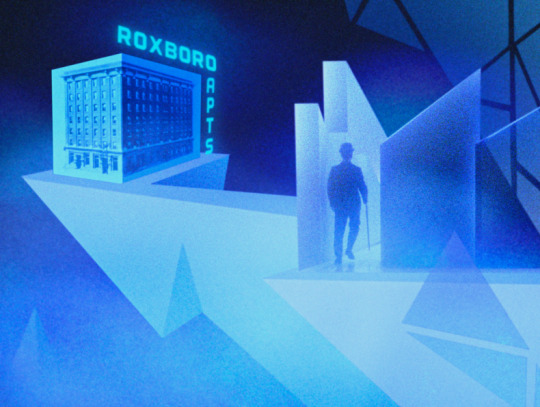
The Twentieth Century is Matthew Rankin's first feature film, the film written and directed by Rankin is comic-drama. The film is a fictionalized portrait of the rise to power of former Canadian Prime Minister William Lyon Mackenzie King as Dan Beirne.
The Canadian story is here transformed and re-proposed, mixing real elements with fictitious facts, in an adventurous journey that the protagonist Mackenzie King has to face. The sets and sets are deliberately unrealistically influenced by German expressionism, 1940s melodrama and war propaganda films. It has an almost Orwellian aesthetic and is also reminiscent of Guy Maddin's films.
Although most of the film's main characters are at least vaguely based on real protagonists of Canadian history, not all their careers are actually coexisted.
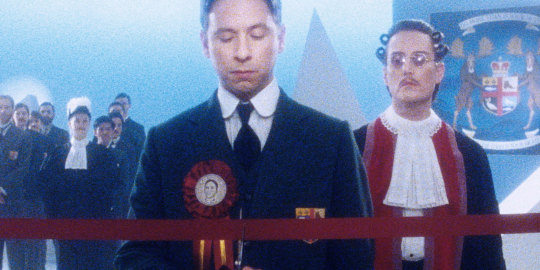
Mattew Rankin says that everything in the film is taken and reworked from Mackenzie King's diary. The story is described in the film as a nightmare that Mackenzie may have had in 1899. The film could also be seen as a satire of the overly serious way in which Canadian history is often presented in films and on television.
In addition, the film uses a cross-gender representation, with three significant characters (King's mother, J. Israël Tarte and Lady Violet). These are performances with a playful, school-like approach where anyone can play someone without necessarily linking the actor to their ethnic or gender profile.
Director and Screenplay: Matthew Rankin
Starring: Dan Beine, Catherine St-Laurent, Brent Skagford, Louis Negin
Country: Canada
Year: 2019
Duration: 90 min
ITA --->
The Twentieth Century è il primo lungometraggio di Matthew Rankin, il film scritto e diretto da Rankin è di genere comico-drammatico. La pellicola rappresenta in modo tutto artificioso un ritratto romanzato dell'ascesa al potere dell'ex primo ministro canadese William Lyon Mackenzie King nel ruolo di Dan Beirne.
La storia canadese viene qui trasformata e riproposta, mescolando elementi reali a fatti del tutto fittizzi, in un percorso avventuroso che il protagonista Mackenzie King deve affrontare. Le scenografie e i set sono deliberatamente irrealistici influenzati dall'espressionismo tedesco, dal melodramma degli anni '40 e dai film di propaganda bellica. Ha un estetica quasi Orwelliana e ricorda anche i film di Guy Maddin.
Anche se gran parte dei personaggi principali del film si basano almeno vagamente su veri e propri protagonisti della storia canadese, non tutte le loro carriere sono effettivamente coesistite.
Mattew Rankin afferma che tutto nel film è tratto e rielaborato dal diario di Mackenzie King. La vicenda viene nel film descritta come un incubo che Mackenzie potrebbe aver avuto nel 1899. Il film potrebbe essere viato anche come una satira sul modo eccessivamente serio in cui la storia canadese viene spesso presentata al cinema e alla televisione.
Inoltre il film si avvale di una rappresentazione cross-gender, con tre personaggi significativi (la madre di King's mother, J. Israël Tarte e Lady Violet). Si tratta d'interpretazioni con un approccio giocoso di tipo scolastico dove chiunque può interpretare qualcuno senza per forza collegare l’attore al suo profilo etnico o di genere.
Regia e Sceneggiatura: Matthew Rankin
Interpreti: Dan Beine, Catherine St-Laurent, Brent Skagford, Louis Negin
Paese: Canada
Anno: 2019
Durata: 90 min
#berlinale#firstfeature#firstfeaturefilm#dan beine#catherine st-laurent#german expressionism#guy maddin#canada#history#film#william lyon mackenzie king#berlinale 70
3 notes
·
View notes
Text
THE TRAP by Lena Headey
Directorial debut short film for Lena Headey, Game of Thrones’s wicked and charming queen.

Excellent directorial debut short film for Lena Headey, better known as the interpreter of the wicked and charming queen in 'Game Of Thrones'. Masterfully directed, Headey manages to express cinematographically a situation that could be considered taboo. She skillfully brings out a current female drama.
A woman of a certain age, Michelle, lives in solitude, working in her own workshop occasionally helping her neighbors who have problems with their cars. One day an intriguing and even a little disturbing young man arrives in the village. A relationship is born between the two, Michelle struggles to let go but eventually falls in love with him. In this story, the protagonist's state of mind is brought out in a skillful and engaging way through a narrative with mysterious and distressing tones.
It's a dark film that doesn't make the viewer feel at ease, this is mainly due to a sense of tension and imminent misfortune throughout the film. However, it is a tender and sensual story that makes the viewer reflect on age, attitudes, love and relationships between people.
Directed And Written: Lena Headey
Interprets: Michelle Fairley, James Nelson-Joyce, Steven Waddington
Country: UK
Year: 2019
Duration: 32 min
ITA -->
Eccellente cortometraggio di debutto alla regia per Lena Headey, meglio conosciuta come interprete della regina perfida e affascinante in ‘Il Trono di Spade’. Magistralmente diretto, Headey riesce a esprimere cinematograficamente una situazione che potrebbe essere considerata un tabù. Fa sapientemente emergere un attuale dramma femminile.
Una donna di una certa età, Michelle, vive in solitudine, lavorando nella propria officina aiutando di tanto in tanto i vicini di casa che hanno problemi con le loro macchine. Un giorno arriva in paese un intrigante e anche un po’ inquietante giovane uomo. Tra i due nasce una relazione, con fatica Michelle si lascia andare ma alla fine se ne innamora. In questa storia lo stato d’animo della protagonista viene fatto emergere in modo sapiente e coinvolgente attraverso una narrazione dai toni misteriosi e angoscianti.
E’ un film cupo che non fa sentire lo spettatore a proprio agio, questo è dovuto principalmente a un senso di tensione e di sventura imminente in tutto il film. Trattasi comunque di una storia tenera e sensuale che fa riflettere lo spettatore sull’età, i comportamenti, sull’amore e i rapporti tra le persone.
Regia e sceneggiatura: Lena Headey
Interpreti: Michelle Fairley, James Nelson-Joyce, Steven Waddington
Paese: UK
#Anno : 2019
Durata: 32 min
#londonfilmfestival#lena headey#Michelle Fairley#thetrap#short story#directorial debut#short#shortfilm#game of thrones#cercei lannister#catelyn stark
9 notes
·
View notes
Text
PORTAIT OF A LADY ON FIRE by Céline Sciamma
Portrait of a Lady on Fire is a story of deep feminine solidarity, it never falls into the banality of gender political discourses and wisely refrains from showing old-fashioned feminist tones.

We're in Brittany in the 18th century. A young artist, Marianne, is called upon to paint, as an image to send to a future husband, the portrait of a noblewoman, Héloïse, but for personal reasons she is against it. Initially, the painter was presented by Héloïse's mother to her daughter as a companion, but soon a special understanding arose between the two young women and the truth about the painting was revealed. From here on, the film will take on an increasingly high artistic and cinematographic level.
This film is a living painting. A work of art in the round, delicate and profound. It is not only the manifesto of the female gaze - defined by the author herself - as vision and observation, but an in-depth exploration of the interweaving of artistic creation and nascent love, memory, ambition and freedom. Sciamma, who also wrote the screenplay, incisively builds the film around memory, setting the entire filmic action as a flashback. Skillfully he knows how to unfold the vision in a dramatic way, also narratively he knows how to infuse the atmosphere of time and action, immersing the viewer in the time and place where the feature film is set.
The film speaks of the personal and creative relationship between a painter and her subject, unusually dominated by a single figure, creating a parallel with the cinematographic style, centered on physical balance and immobility and exemplified in the fixity of a gaze. The work revolves around the relationship between the artist and the model and, in particular, Marianne's confession to Héloïse who is painting her portrait. The result of this new understanding is a transformation of the personal and artistic bond - and of Marianne's art itself, which up to that point was focused on technique and form. With the revelation of Marianne's artistic purpose, Héloïse becomes her accomplice in the creative act, willing and involved, their intellectual and creative understanding does not dilute the individuality of Marianne's artistic ability, but enhances it. The transformation of art from an applied technique into a vital experience as well as a personal passion is the crucial turning point of the drama. Stylistically perfect, from costumes to dialogues to both indoor and outdoor scenes, the film, though set in another era, is tremendously relevant. The very nature of female art and the marginalization of women in the art world are integrated into the film through a subplot (an unwanted pregnancy and abortion) in a way that unmistakably echoes today.
This all-female film is emblematic, not only about art but also about complicity and solidarity towards the female figure, even if of different social classes. Sciamma allows the sisterhood to blossom organically from the austere traditionalism of the environment.
Directed and Written: Céline Sciamma
Interprets: Adèle Haenel, Noémie Merlant, Luàna Bajrami, Valeria Golino
Country: Francia
Year: 2019
Runtime: 120 min
ITA--->
Siamo in Bretagna nel XVIII secolo. Una giovane artista, Marianne, viene chiamata per dipingere, come immagine da inviare a un futuro marito, il ritratto di una nobildonna, Héloïse, che però per motivi personali è contraria. Inizialmente la pittrice viene presentata dalla madre di Héloïse alla stessa figlia come dama di compagnia, ma presto tra le due giovani donne nasce un' intesa particolare e la verità sul dipinto viene svelata. Da qui in poi il film assumerà una forma di livello artistico e cinematografico sempre più elevata.
Questo film è un dipinto vivente. Un’ opera d’arte a tutto tondo, delicata e profonda. Non è solo il manifesto dello sguardo femminile - da definizione della stessa autrice - come visione e osservazione, bensì un'esplorazione approfondita d'intrecci tra creazione artistica e amore nascente, tra memoria, ambizione e libertà. Sciamma, che ha anche scritto la sceneggiatura, costruisce incisivamente il film attorno alla memoria, impostando l'intera azione filmica come un flashback. Sapientemente sa far dispiegare la visione in modo drammatico, inoltre narrativamente sa far infondere l’atmosfera temporale e d’azione, immergendo lo spettatore nel tempo e nel luogo in cui è ambientato il lungometraggio.
Il film parla della relazione personale e creativa di una pittrice e del suo soggetto, insolitamente dominato da una singola figura, creando un parallelo con lo stile cinematografico, incentrato su equilibrio fisico e immobilità ed esemplificato nella fissità di uno sguardo. L’opera ruota sul rapporto tra l'artista e la modella e, in particolare, sulla confessione di Marianne a Héloïse che ne sta dipingendo il ritratto. Il risultato di questa nuova comprensione è una trasformazione del legame personale e artistico - e della stessa arte di Marianne, che, fino a quel punto, era incentrata su tecnica e forma. Con la rivelazione dello scopo artistico di Marianne, Héloïse diventa sua complice nell’atto creativo, disposta e coinvolta, la loro intesa intellettuale e creativa non diluisce l'individualità dell'abilità artistica di Marianne, ma la accresce. La trasformazione dell'arte da una tecnica applicata in un'esperienza vitale oltre che in una passione personale, è la svolta cruciale del dramma. Stilisticamente perfetto, dai costumi, ai dialoghi, alle scene sia interne che esterne, il film, seppur ambientato in altri tempi, è tremendamente attuale. La natura stessa dell'arte femminile e l'emarginazione delle donne nel mondo dell'arte sono integrate nel film attraverso una sotto trama (una gravidanza indesiderata e un aborto) in un modo che riecheggia inconfondibilmente ai giorni nostri.
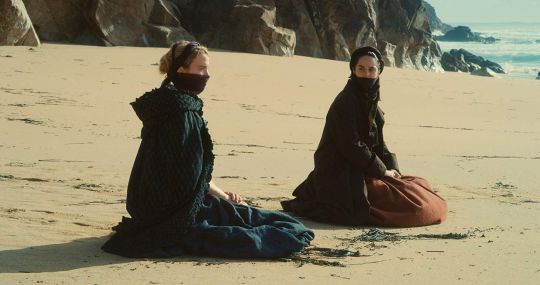
Questo film tutto al femminile, è emblematico, non parla solo di arte ma anche di complicità e solidarietà verso la figura femminile anche se di ceto sociale diverso. Sciamma consente alla sorellanza di sbocciare organicamente dall'austero tradizionalismo dell'ambiente.
Portrait of a Lady on Fire è una storia di profonda solidarietà femminile, non cade mai nella banalità di discorsi politici di genere e si astiene sapientemente dal mostrare discorsi dai toni femministi d’altri tempi.
Regia e sceneggiatura: Céline Sciamma
Interpreti: Adèle Haenel, Noémie Merlant, Luàna Bajrami, Valeria Golino
Paese: Francia
Anno: 2019
Durata: 120 min.
#london film festival#LFF#celine sciamma#Noémie Merlan#adèle haenel#valeria golino#londonfilmfestival
2 notes
·
View notes
Text
THE IRISHMAN press conference
London Film Festival 2019
undefined
vimeo
London Film Festival Director Tricia Tuttle presents The Irishman’s Director Martin Scorsese with producers Emma Tillinger and Jane Rosenthal. And the actors Robert De Niro and Al Pacino.
Il film è incentrato sulla memoria e stilisticamente offre all’occhio del osservatore una quantità innumerevole di elementi visivi accattivanti. Questa opera fa dispiegare lo sguardo in modo drammatico sugli avvenimenti che storicamente si susseguono, inoltre allo stesso tempo ci fa fluttuare come in una sorta di distillazione del tempo e del luogo in cui è ambientato. L’uso degli effetti speciali è straordinario e come per quasi tutti i film di Scorsese ci troviamo di fronte a un capolavoro di genere.
The film is focused on memory and stylistically offers the eye of the observer an innumerable amount of captivating visual elements. This work makes the viewer's gaze unfold dramatically on the events that historically follow one another, and at the same time makes us float as if in a sort of distillation of the time and place where it is set. The use of special effects is extraordinary and like almost all Scorsese's films we are faced with a genre masterpiece.
Regia: Martin Scorsese
Interpreti: Robert De Niro, Al Pacino, Joe Pesci, Romano Bobby Cannavale Anna Paquin, Stephen Grahm, Harvey Keitel
Paese: USA
Anno: 2019
Durata: 209′
di seguito l’intervista ==>
Q:
Why did it take so long? You've known each other for decades. I know this project it has been in your mind for a while...
Bob De Niro: Yeah... he said, I just read it, it just had come out, I got to read that book... That was about three years earlier.. Marty was starting to show me ..
Martin Scorsese:
Some special work that Bob and I'm involved in for twenty somewhat years. that we were trying to get another project film, based on... Hollywood in the 70s 80s.. that developed into something else, about something else. We never quite settled on the project. The last time we worked together was in 1995: 'Casino'. So from that point on we would check on each other what we were doing, whether I could fit into his plan or vice versa. Ultimately we did, I think, in the winter of Frankie Machine... We decided we had to do something... maybe in 2010, no, 2008.. We thought this might be a project with possibilities... I was really looking for something that would enrich more or less where we had gone in the 70s and the 80s and early 90s.. to just replicate or trying to do the beginning of our careers wouldn't be anything enriching. So, you were about to direct the 'Good Shepard' - Eric ... was writing that... And Eric, knowing that we were trying to do something called 'Frankie Machine' about a hitman who retired... Eric gave you a book called 'I heard you paint houses' by Charles Bran for research
MS:
Jean Gabin film like 'Touches pas gris be'??? Matfields too low (Toulaux) Le deuxiËme circle...pictures like that... Gabin character...
By the time you're doing 'Casino', I felt that presence was similar
Bob:
And then I survived to read this book that I 've been always wanted to read called 'I heard you paint houses'. I read it just as research character . When I had read it I got together with Marty and said: you gotta look at this ... So that was it.
MS:
You had the story about (on the telephone) Brad Brit?? right?
Lady:
So you were ready to comit to making Frankie Machine, financed by Paramount, we were all on call together to get the green light and in the middle of this conversation Bob said: Well, this other book that we are thinking about, maybe we could combine these two movies . And Brad said: So you want to take a go with it and turn it into a development project?... That was 2007 ... Then we brought Steve Zillion on and Steve delivered (Steven, Marty and Bob worked together and did option 'I heard you paint houses' and Frankie Machine went away and Steve delivered the script in 2009..
MS:
The point is that we were trying to find something that we could ride /write with (I don't know how you define ride/write... it's ambiguous... kind of we felt comfortable in a way.. something we could not articulate and once he described this character to me, I felt that he had a good sense of it so I said: this is maybe where we could really try to explore and see what we could come up with, that it might really be of value ultimately or as a creative point which is what he cared getting out.. to impress the cast ... so we took a chance... Steve pulled together a wonderful script, and it took a number of years...
Bob:
Steve wrote the script which is terrific, wonderful as Marty says, and it was a matter of getting everybody's schedules to line up. Marty was doing ... coming over here.. I don't know when you was doing Euro.. 2009/ 2010.. We would talk about what we were going to do, if there was availability, you wanted to do 'Silence'... I said to Marty I wanted to make sure he was okay if we would just let it out there.. usually I am very superstitious about that it usually doesn't happen... I felt maybe in this case since we got no backers, no people really interested in the idea that we were doing it with Al and Joe... if they were okay with mentioning that they were on board.. So we did that and then we had a reading of the script..
Lady:
the reading of the script January right before you left to go to 'Silence'. That was this one opportunity to get everyone together, and we taped the reading 2012... I thought that that would be all we would have of the Irishman, since it would be difficult to get financing. Then when everybody heard it , there was a new energy, but Marty and Emma went back to shoot 'Silence', so we had another delay.. A good one.
Al Pacino:
I've known Marty and Bob for very long time..Anthony called me about it, it sounded really interesting...The opportunity to work with them was very important for me. For years we always spoke together, Marty and I, about different things.. and of course Bob and I worked together we had known each other since we were young actors
MS:
The first meeting we had about this, we talked about it in a hotel in LA
AP:
That's right! The hotel! It's all coming back to me now...
MS:
After all the discussions he looked at me and said, is this gonna happen, because... the complications and schedules and then of course, no real enthusiasm to say the least about financing, really made it something that is a nice dream and you said: that maybe the reading was going to be the only time you've heard it or seen it... we knew that from the beginning
AP:
I think that reading was very well orchestrated 09.06.72
Very effective...
MS:
Bob arranged it so there were the right kind of people there
Yeah, they got excited about it but still didn't raise the money
I remember, it was you, Al, Bob, ... Bobby Carneval, pauly Herman??? Joe pesci, Stefanie...
AL:
You can feel it that there was a live wire there.. I always thought it wouldn't happen...
Bob:
I got a call from Al...is it gonna happen..?
don't worry, they'll work it out...
Lady:
Thank goddness you did, because there were these fantastic time sugressions?? ..
Journalist:
Hello, Catherine Dreyer from Free Cinema... I just saw the film ', of course mind blowing.. one of those old epic things that make you like it to be in the cinema and watching it.. So thank you so much already for that. The question is... this is obviously a Netflix production, it's coming out very shortly after running in the cinemas. It seems to be a very good collaboration between TV / internet companies with the film industry.. Will we have at some point to redefine perhaps what is cinema?
MS:
...I think it's not just an evolving sort of thing, it's a revolution, even bigger a revolution that sound was for cinema, it's the revolution of cinema itself. A new technology, bringing things that are unimaginable... is it something extraordinarily good for narrative films, or stories told in motion pictures... it opens up the original conception of what a film is and where it's to be seen has now changed so radically that we may have to say, okay, this is a certain kind of film, it's made here... there might be a virtual reality films that have holograms, all sorts of things that are coming that we don't even know... Something that should always be protected as much as possible and that I think will always be there, is a comunal experience. I think that's best in the theater... Now, homes have become theaters, too... It's a major change... just keep an open mind... there is no doubt that seeing film with an audience is.... there is a problem though.. you have to make the film.. we ran out of room in a sense... there was no room for us to make this picture... for many different reasons, ultimately there was financial issue, too in terms of the CGI that we did and the reason why, the CGI is kind of complicated...because at a certain point if I made the film earlier they could have played younger and then at a certain point we missed that, and then they said, use younger actors who play them younger, and I said, well, what's the point of that... I want to find a CGI... let's see what they experiment, open it up... I mean CGI to that extend is really an evolution of make up... you'll accept certain make up, you know that she is not that old, she's not that young. You accept that as a norm. I mean you accept the illusion so to speak. Taking that and having the backing of a company that says, you have no interference, you can make this picture as you want, the trade off is its streams with the attribule distribution prior to that. That's the chance we take on this particular project. What streaming means and how that's going to define a new form of cinema, I'm not sure. I thought for a while maybe long form TV cinema- it's not! It simply isn't. It's a different viewing experience. You're going to get three episodes, two, four-ten... one one week, second episode the second week... that's not ... it's a different kind of thing, so there's got to be still what has to be protected is the singular experience... experiencing a picture, ideally with an audience... But there's room for so many others now, and so many other ways. There's gonna be cross overs... Value..? the value of a film that's like a theme park film for example, where the theme is becoming amusement parks... that's a different experience, it's not cinema, it's something else.. and it shouldn't be rated ?? by it.. That's a big issue.. We need the theater (audience?) to step up to that, to allow to show films that are narrative films. A narrative film could be one long take for three hours, too, you know. It doesn't have to be a conventional 120 minute film.
What Marty said, it will be in theaters and even when it goes on plate-work??? it still will continue to be in theaters, so audiences have their choice of whether we're going to watch it in theater and have an amazing cinema comunity experience or whether they want to watch it on the platform. Roma, for example, is still in theater around the world. So the audience has the choice of how they want to use something...
LADY:
Cinema has reached a point where changing has the option of having streaming as it were in this case...???
Journalist from AUSTRALIA:
Sergio Leone's 'Once upon a time in America', started de Niro, a film had small similar to this one,... do you think there are any references to that film here?... It's a long film, not as action packed as your early gangster films, I think they are very different to this.
But how is it different to your early gangster films?
MARTY:
Well, this underworld milieu... I guess the similarity is that it's very long and Bobby de Niro is in it.... I guess the two of us made a movie, when we were trying to get the finances, I know how to do this... I know how to follow it through.. I just went with that..
What did you feel looking at yourselves younger for the first time when you're looking back at the movie. Was it a bit crazy?
MS:
How does it relate to them? Well, back in 1973 we're 29, 30 years old, now we're much older and so we hope that maybe the... over time... that something has evolved, maybe deepened to a certain extend of our life... in a back it can be conveyed in a story, performances, in the way a film is put together, that would be some sort of an advancement, rather then just replicating what we have done in the past
New technology and all that... does it open a brand new world for everyone?
AP:
Considering everything is crazy. It was crazy. I don't know quite what you mean though, I'm sorry... what were you saying?
AP:
I don't feel that way, personally... this is a technique that is barely on? It's what they have said, it's a form of make up.. It could change things... But I don't think you feel that way -- as an actor -- I think you feel that as an actor, you're playing a role,... a role that more then likely hopefully you're suited for... so when you do that... it doesn't matter what you look like.. It is sort of true in a way... because, when I saw the film.. he showed it to me without anything... I just went with it and I didn't think anymore that.... this was a story... it was handled / delivered in such a way, alectorially, visually, costumage.. everything. And also the acting. I think that was what was taking me up... the story... I wasn't thinking about anything else after a while, I mean I didn't even think about when we first started.. Of course it was me ... I wasn't thinking about the wines, our faces or anything... this was accepting these people.. they existed, too, this is another thing. This was an interesting thing... because it's a story about real things that happened. people really lived.. Maybe that had something to do with my reaction. This whole thing can be innovative, of course, but at the same time it tells a story... I'm a little more concerned about that...
As I say, I did see the film without any work... and it was fine.. as a matter of fact, I'm the only one who felt that way
MS:
I think it is really good that we have that potential, it is stating what it's stating: the old days... some actor that we all knew and love and they put grey hair on him, we say, oh, he got older, but you accept it, because this is in the story
Bob:
I always joked that my career will be extended another thirty years... No, it's a whole industry... where / how it will evolve... I was just thinking about copyrights... likeness, and who gets it long after we're all gone, families and stuff like that. We even have that now in some way, using famous actors from years ago, commercial... to represent that product... I don't know, I'm just happy we're at the beginning stages of really being ... God knows where it goes... what excited me about it was that pablo helman was doing this thing and wanted to make it state of the art, the best it could be to date. That was an ambition for this movie, which was ambitious always... it fit the whole enterprise
MS:
It's also how you move... these are the little things
AP:
You're walking along looking... pretty and then you got to get up... (grimace)... hey, man, what are you doing, you're 39! 25.22.23
Question from German Journalist :
What was the biggest challenge for each one of you on this movie (directing - acting
MS:
Making (movies?) is a big challenge.. in terms of realm... the guys are performing.. so I cannot speak for them, but for me it's cutting through all the issues of how you perceive a story, the sweep of a story, what's essential, what isn't essential, making those editing choices right there, on the set. First of all even before set, before shooting begins, make those editing choices, and in shooting even top around those editing choices because it's very complex.. in terms of technology... and staying on point, staying on what's essential to the story. Those are the characters, particularly Frank's character, and eliminating everything else around that was getting in the way. And this I think was a 108 day shoot. So this is one thing. And then the editing, too. So it's wrangling the picture, in a way.. always threatening to run a little bit out of control, but grabbing it again, and using Frank Sharon as the anchor. The whole picture took finally to wind up with him alone. That's what all film is about. That's just general of how you make a movie. Otherwise you sometimes make a movie you don't know what you're going to do when you get there on the set... I tried that once, it didn't work... for me it didn't work... I usually like planning and fighting my way through the whole process.. until we get, the best we can, to the end... resolve with the character...
BN:
Yeah, I mean, certain things.. like Marty, every so often, I would come in to narrate pieces that Marty figured that had to voice over to give information or whatever... That's a novel part of making a movie...
MS:
You went into the audio tracks... the voice stories and setting and then we'd go... tell me something
Interesting... and then try to find time to shoot it.. in the film, like give it to Emma and tell her to find some production time, please
Emma:
I'd say yes
Q:
So was that your biggest challenge...
Emma:
.. helping Marty realize everything?... yeah...
(laughter)
We want all of them to have the time...time to create and the environment, a quite / safe space for them to do. You wanna wrab that at all... it's a challenge, but we are phenomenal partners, the best, we carved out that time in stakes, I hope
Q:
Why do you think we are constantly pulled back into talking about films about pain and trauma as in the Irishman, there's a lot on the macro level with the asasination section, but it really does go into personal individual pain
MS:
I think pain is an important story to everybody, pain, suffering... that idea what makes an interesting story... what do you think?
Bob:
Well I think, this was a simple story. It was about a guy who was caught between two people... powerful people.. One of them disappeared - we never knew what happened really to this day - the other one was also -- Joe Galler (?).. for him.. you still don't know who did that to him... it had that to hang on someway... this political, this grand story with these historical (if you want) type of characters... a simple story
MS:
... and not so far - in terms of that - of what we were talking about these guys.. and on the other level you have JFK, Bobby Kennedy, Martin Luther King... all this going on.. and nobody knows really what happened there... I always say, would it make any difference now if we knew exactly who, when, how, and where..
... the dark course of it take over (???)... that are always present... these guys are right in the middle of it, in a way... they just walk by a TV and there is missles coming from Cuba... and that's your afternoon lunch... when we say a simple story is because the rest is so complicated
Q:
For me in many ways this is about reflection. I was wondering as you have amazing careers... do you guys ever sit back and reflect or do you always look to what's the next project
And I was wondering... do you think you could have made this ...now, cause you have lived and are still alive ..so that now that you're in a kind of position to understand better the texture of this narrative
MS:
you mean, if we had made this film earlier it would have been different
Q:
Yeah
MS:
Absolutely, I mean... I don't think we got together and said, let's make a movie and reflect... as I say, it's intuitive
1 note
·
View note